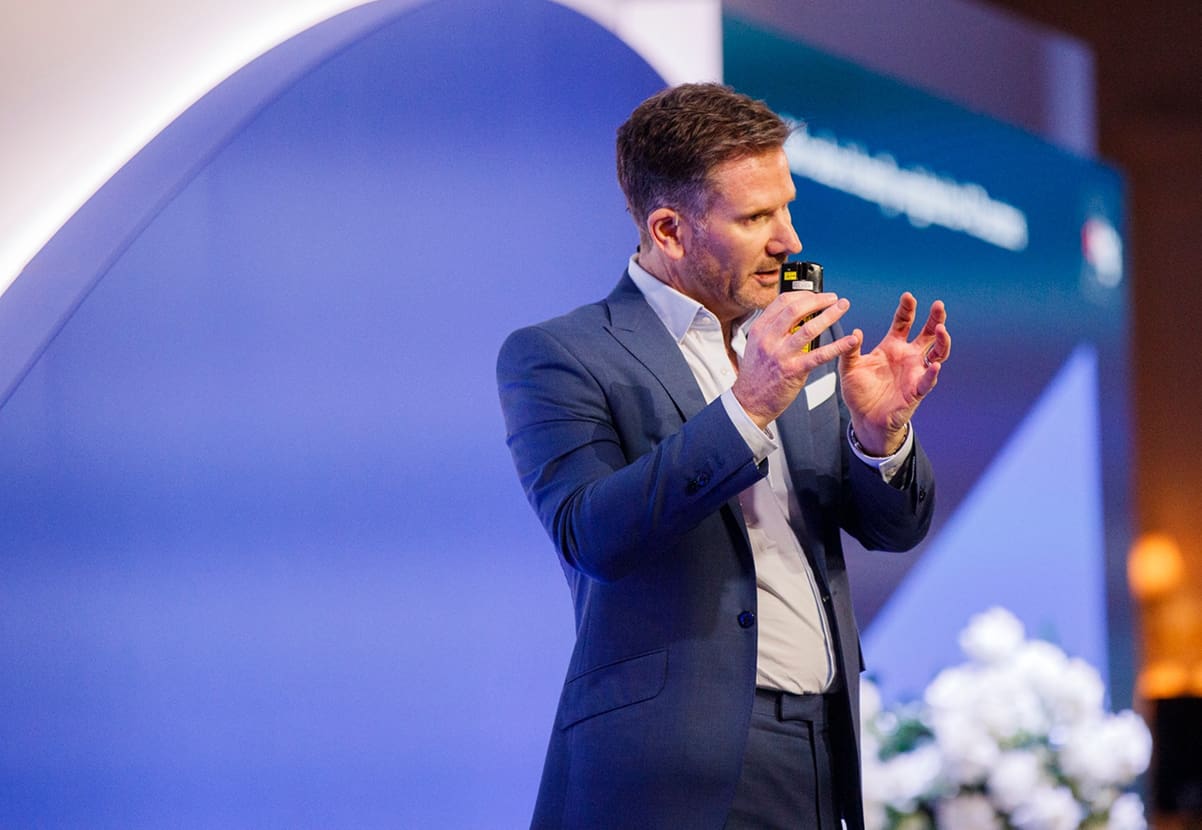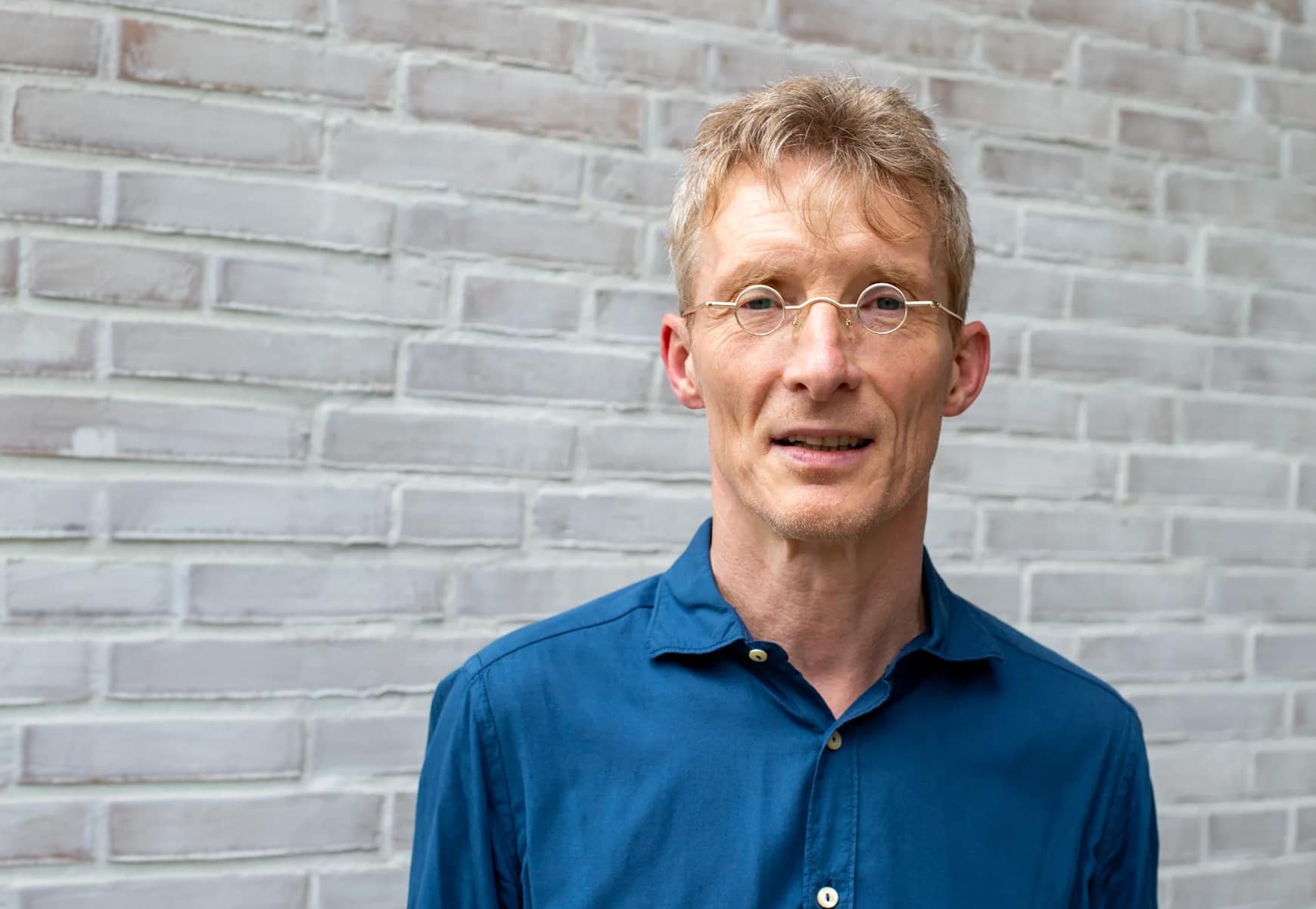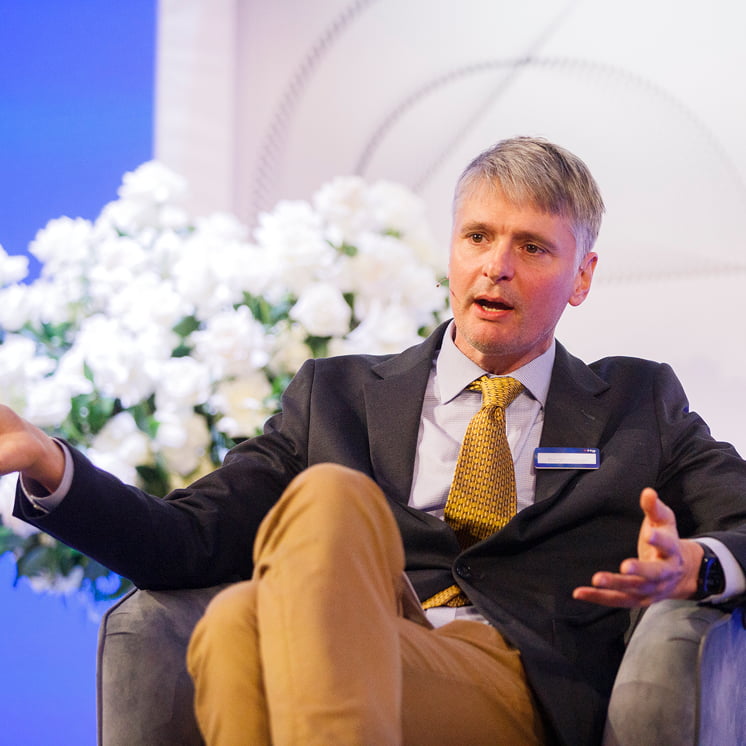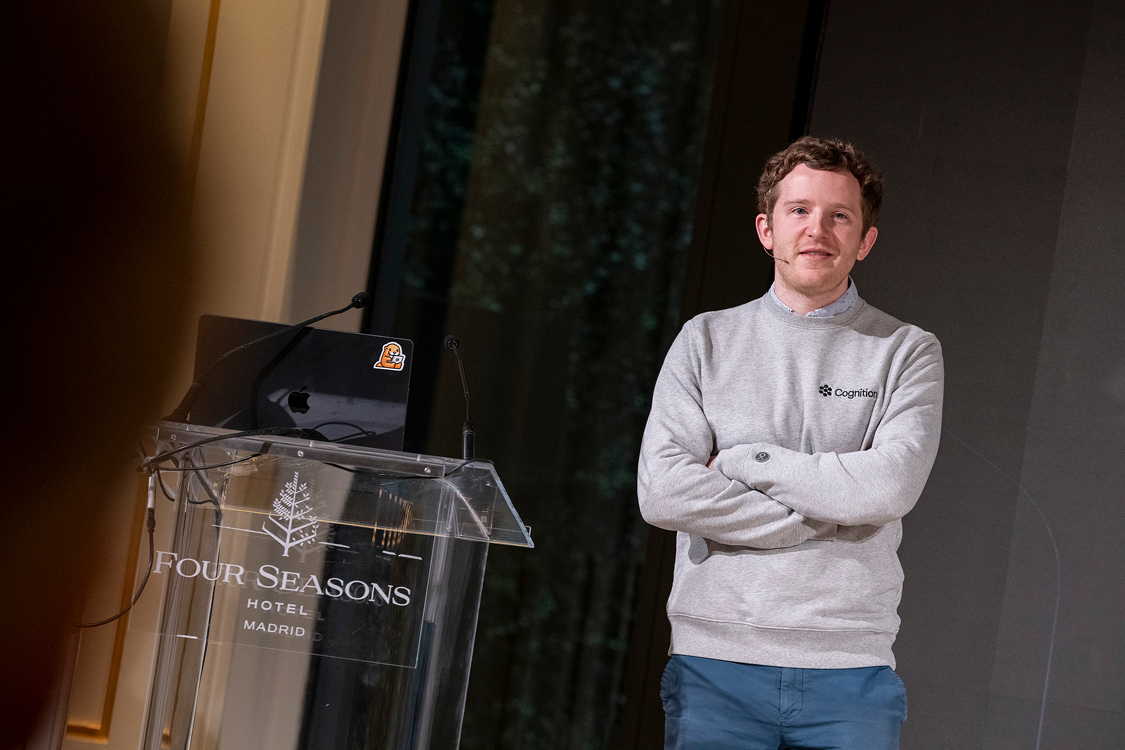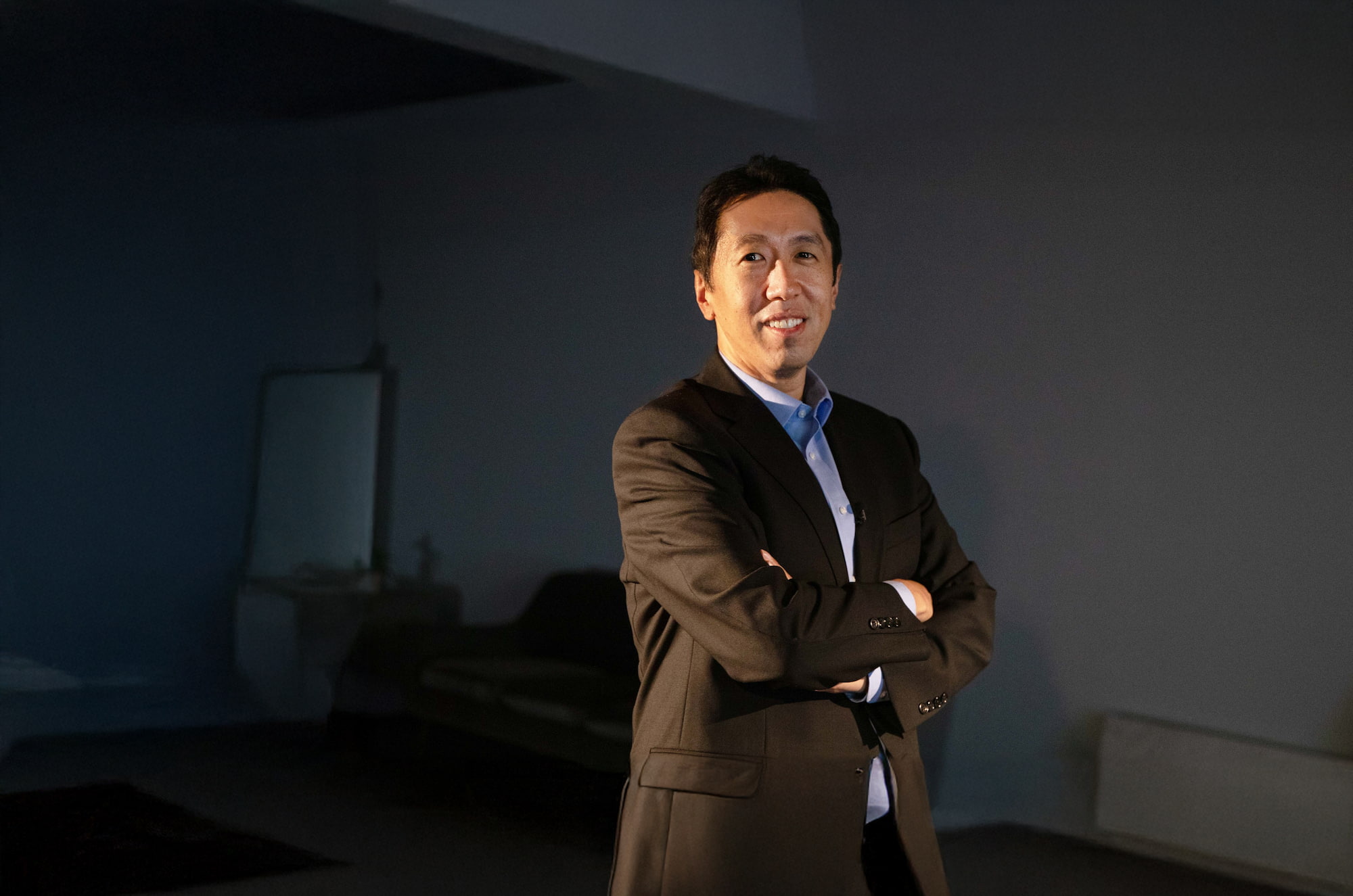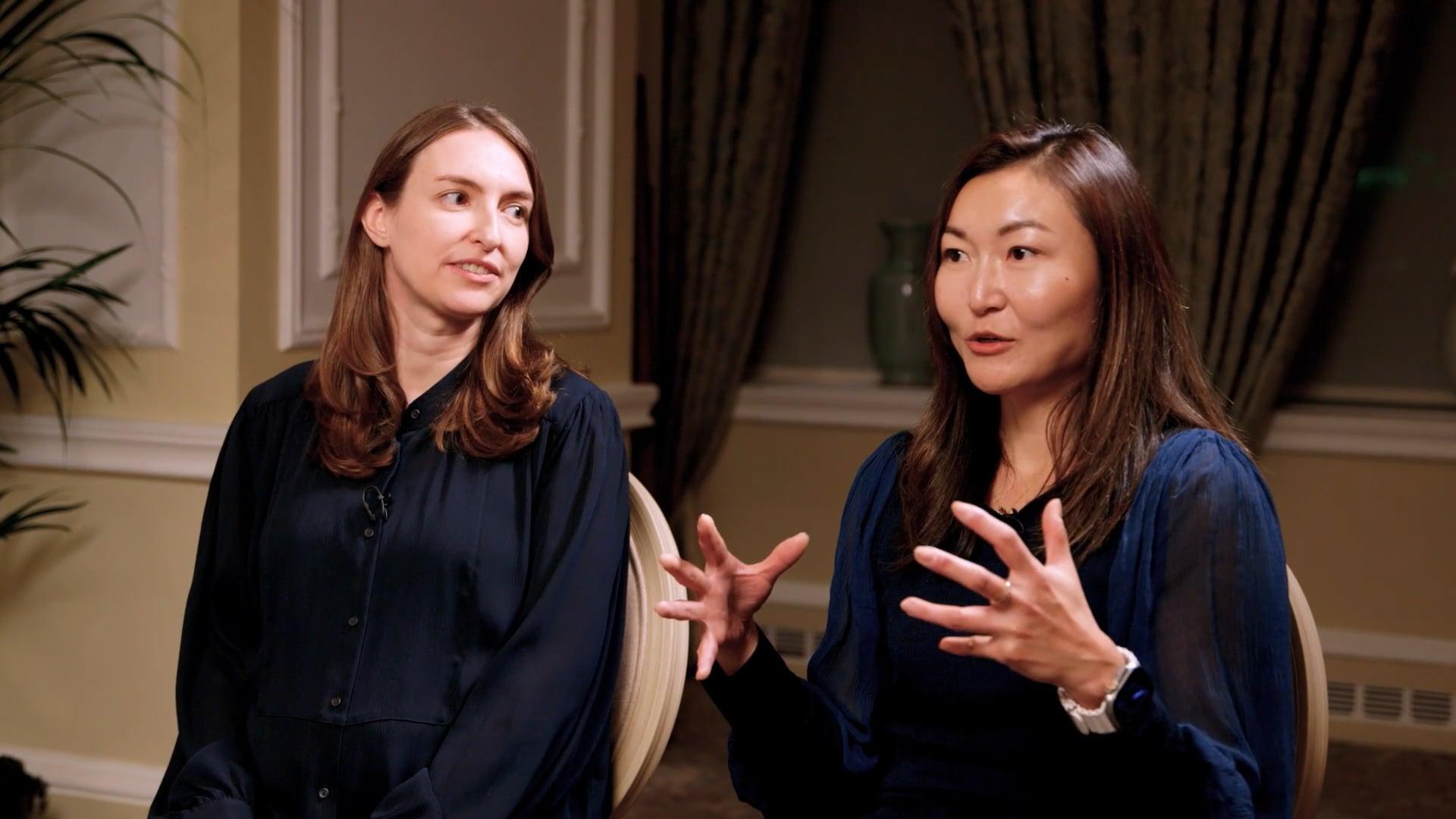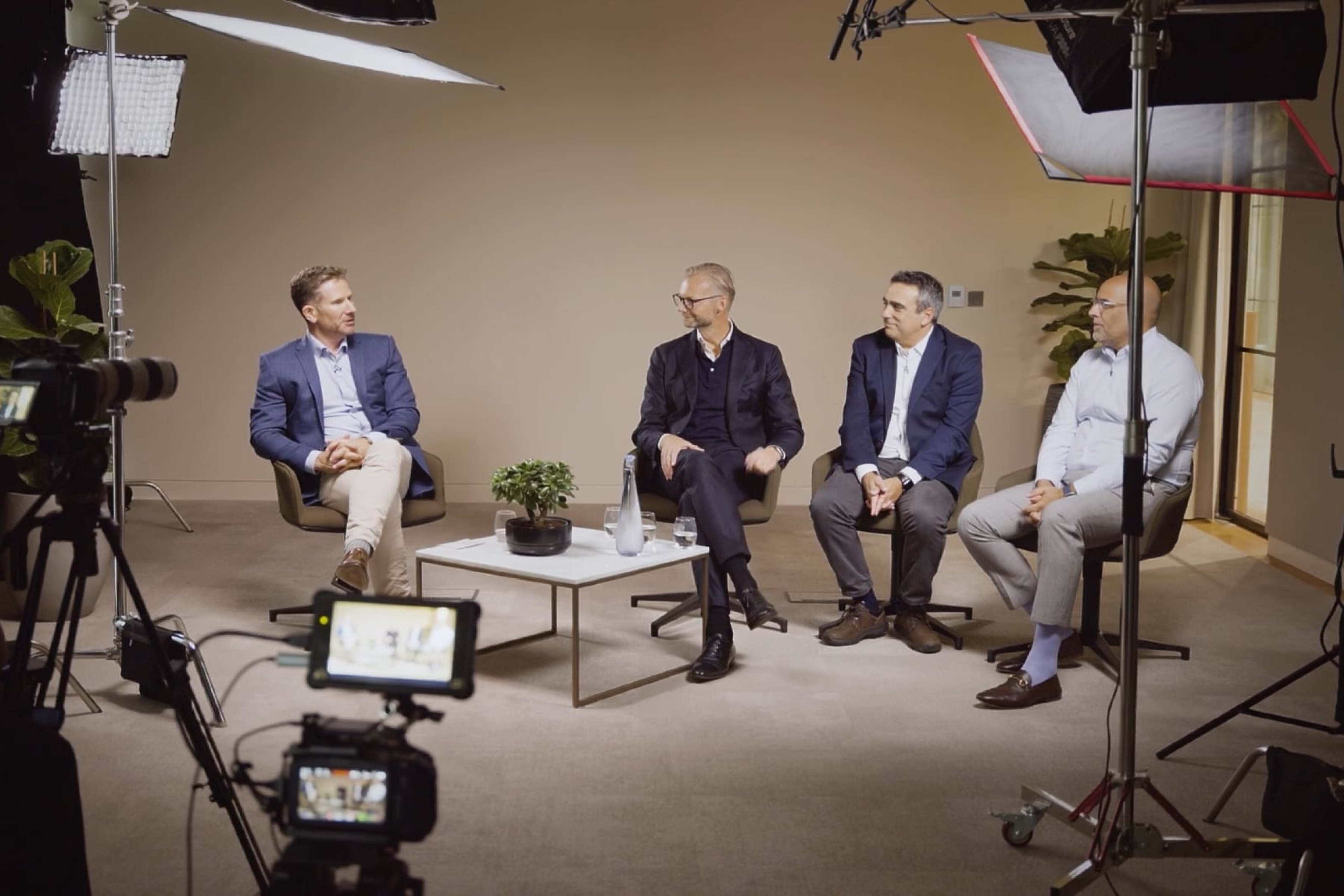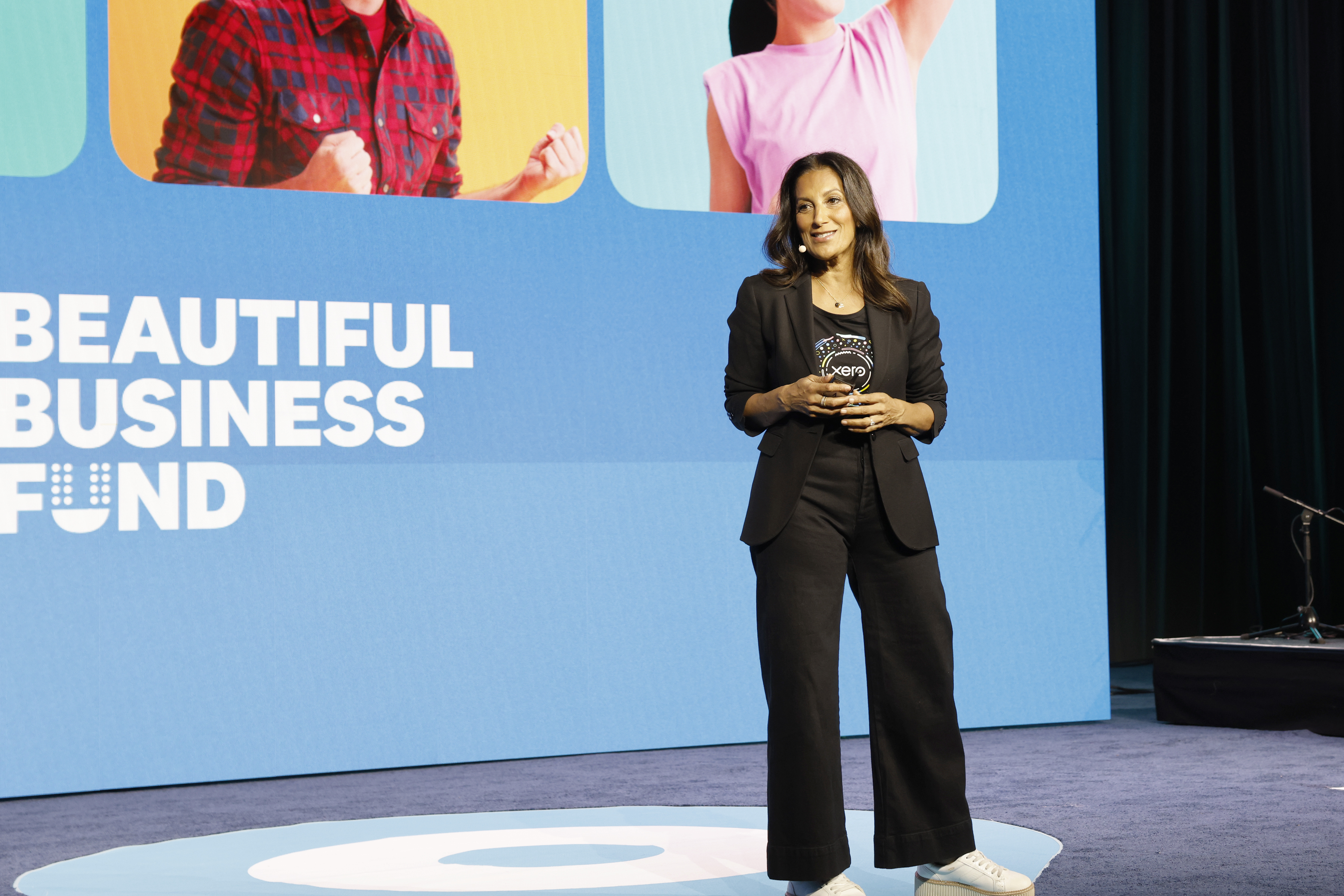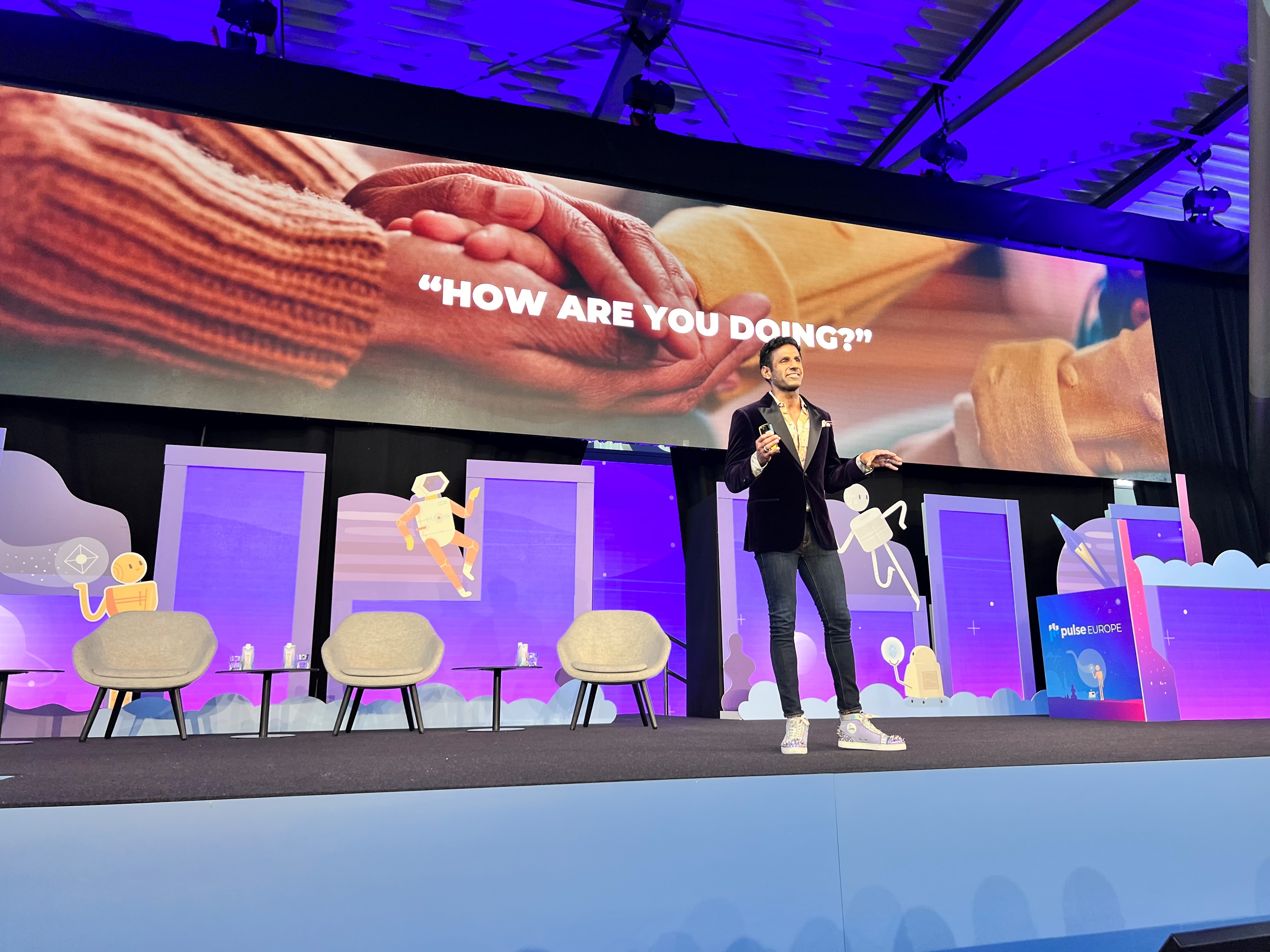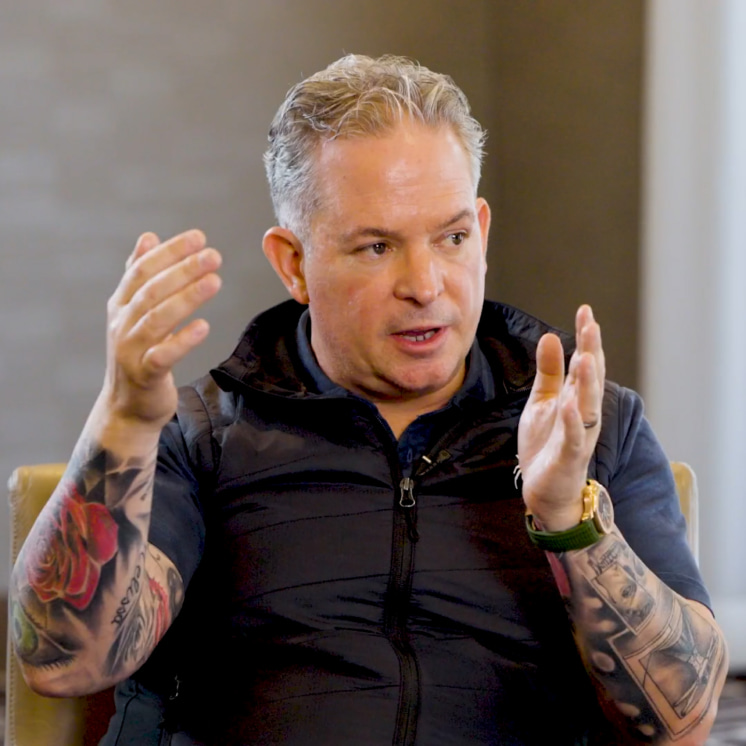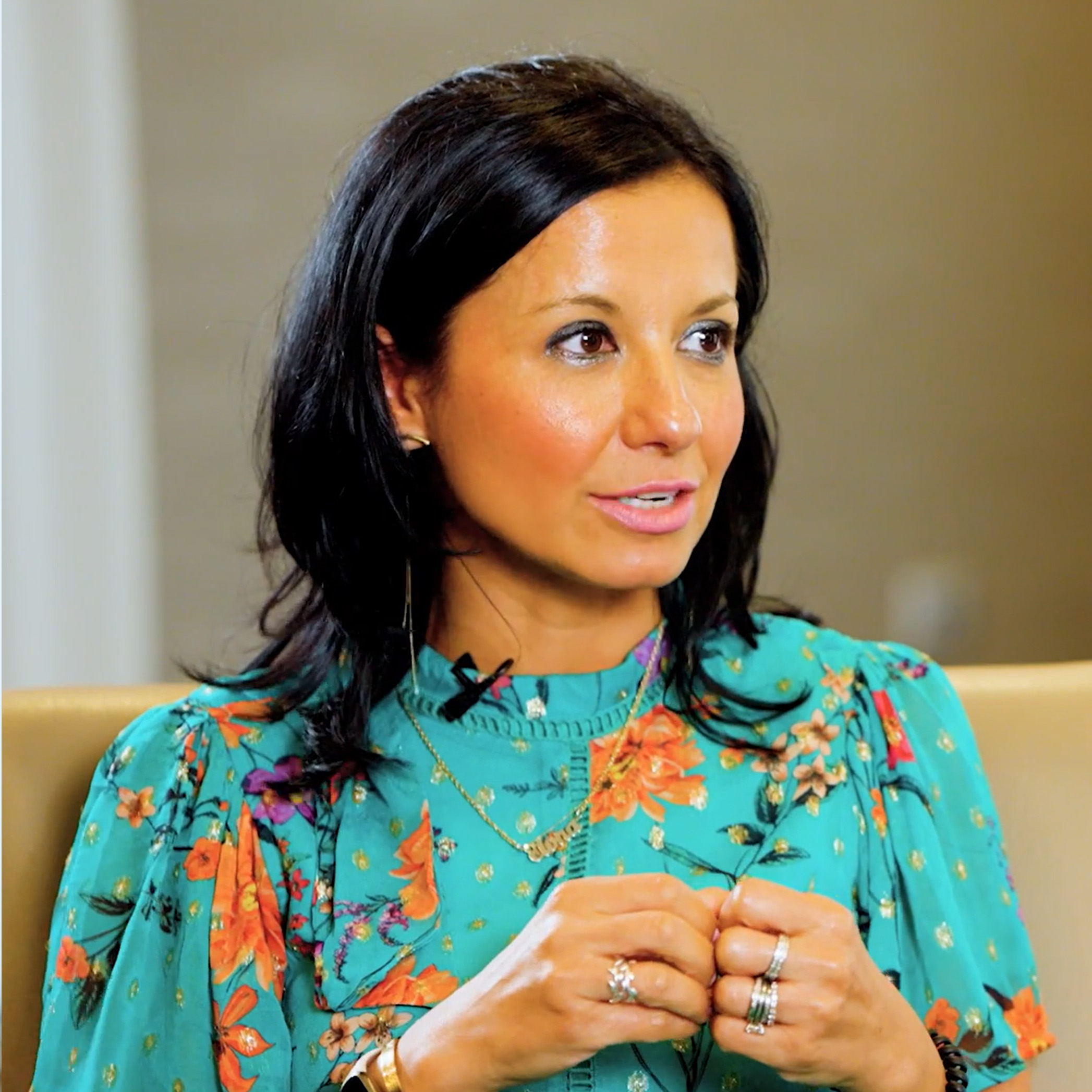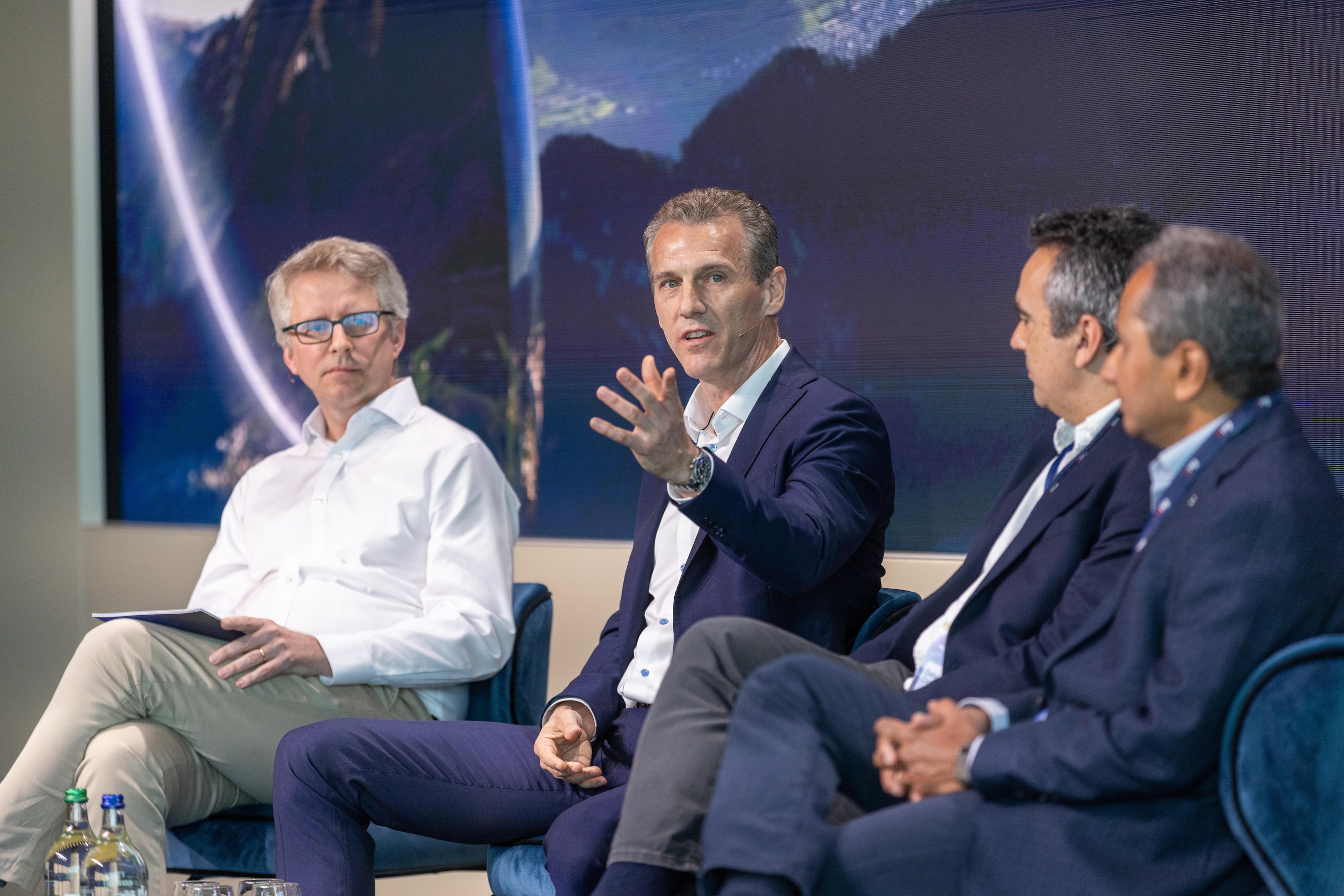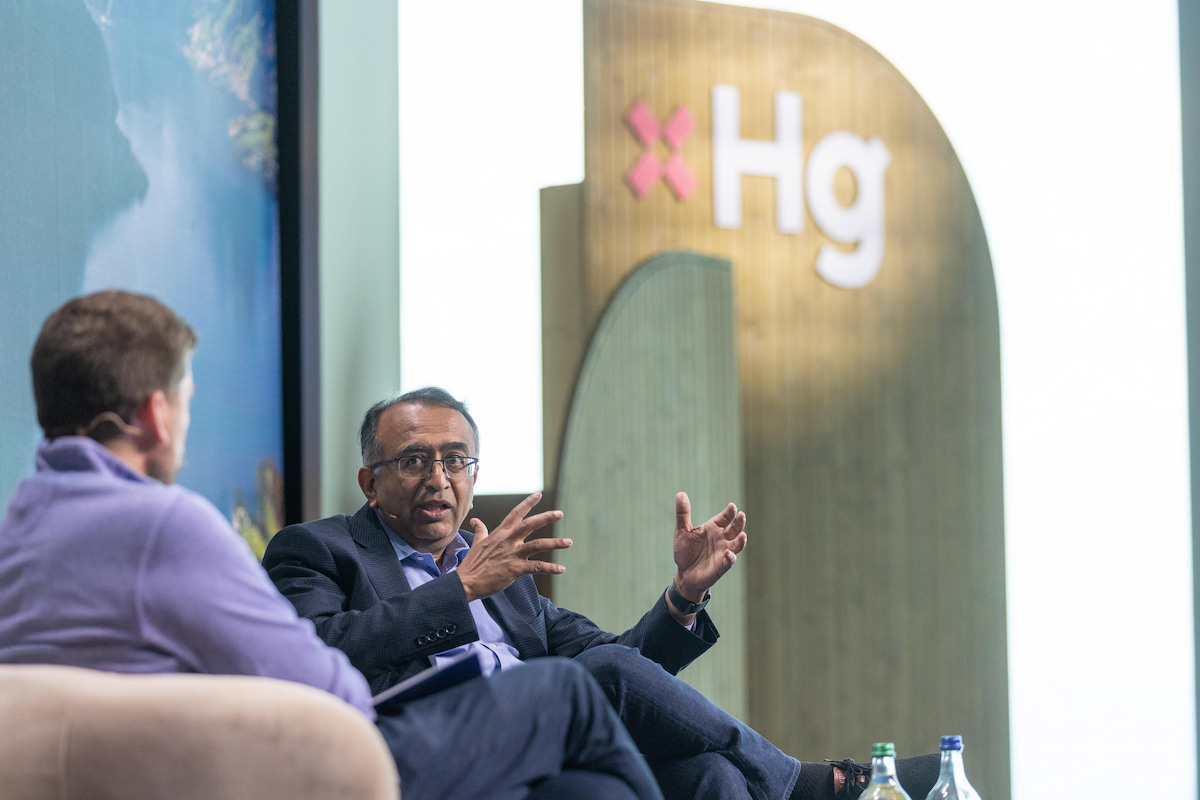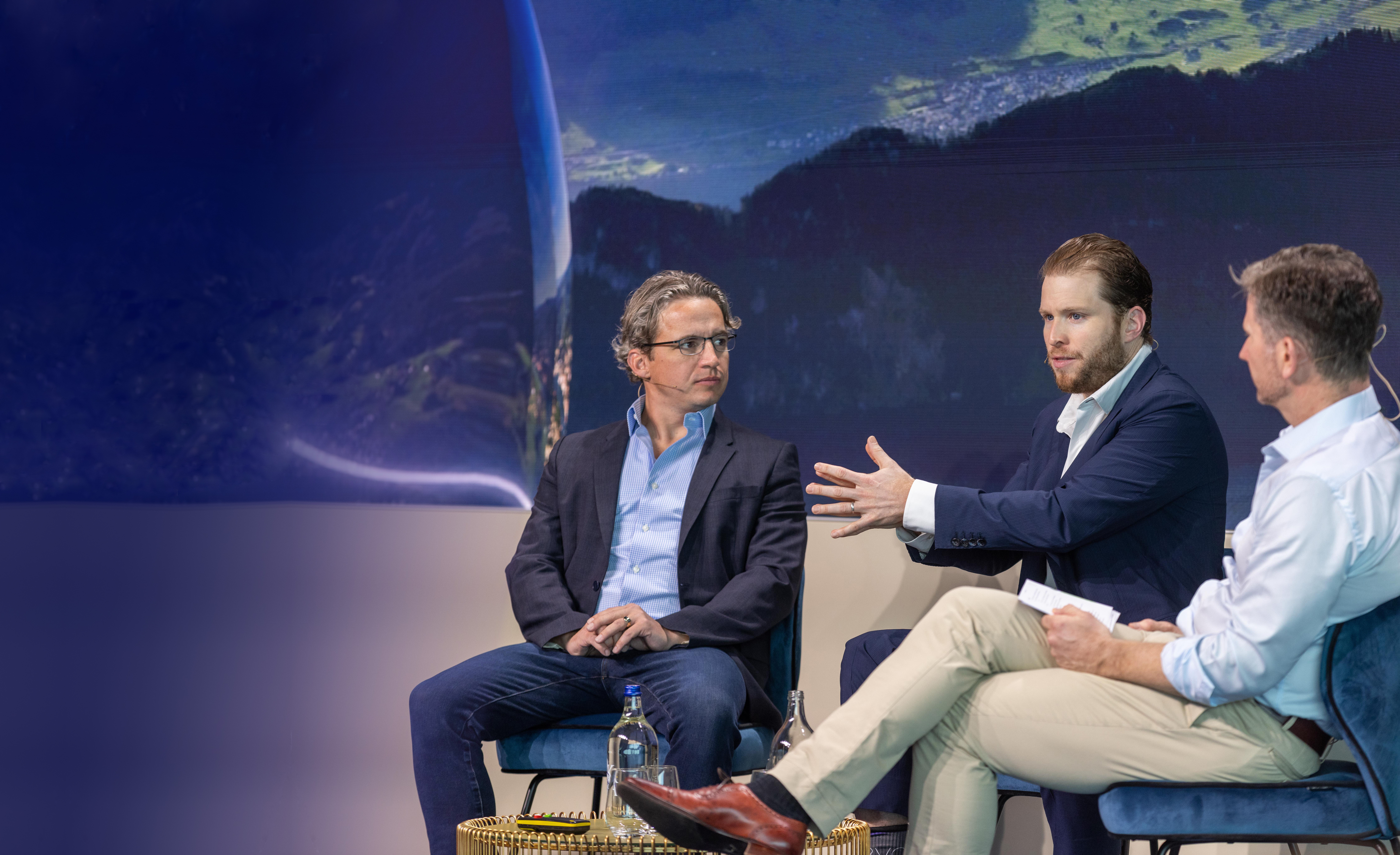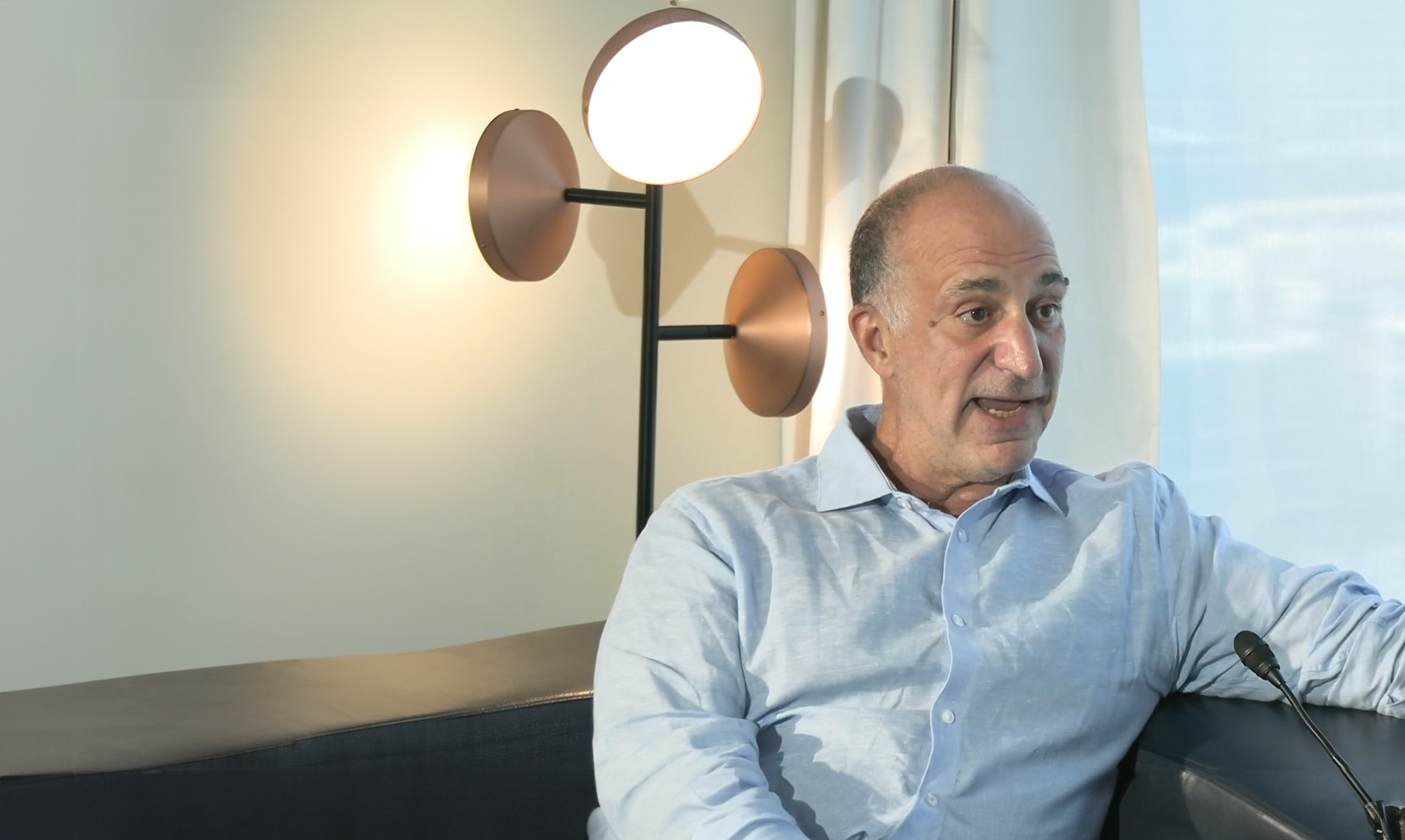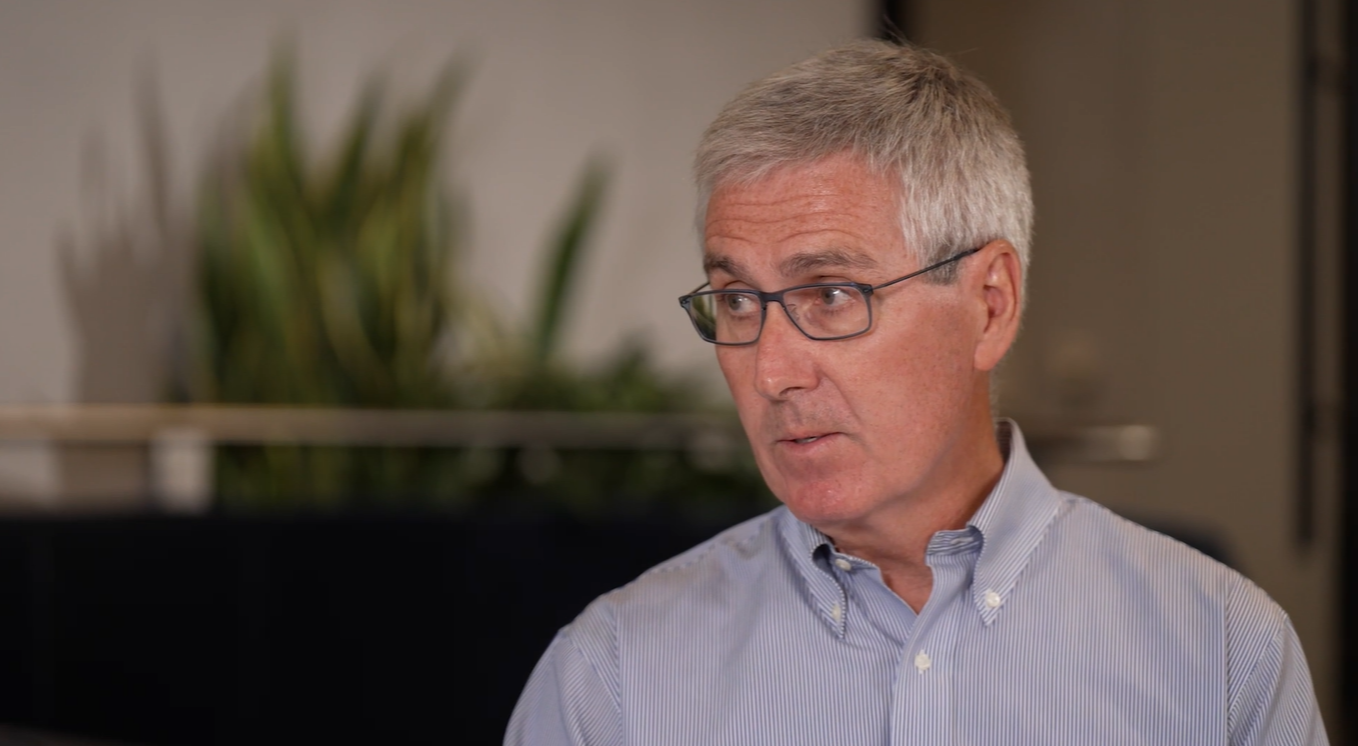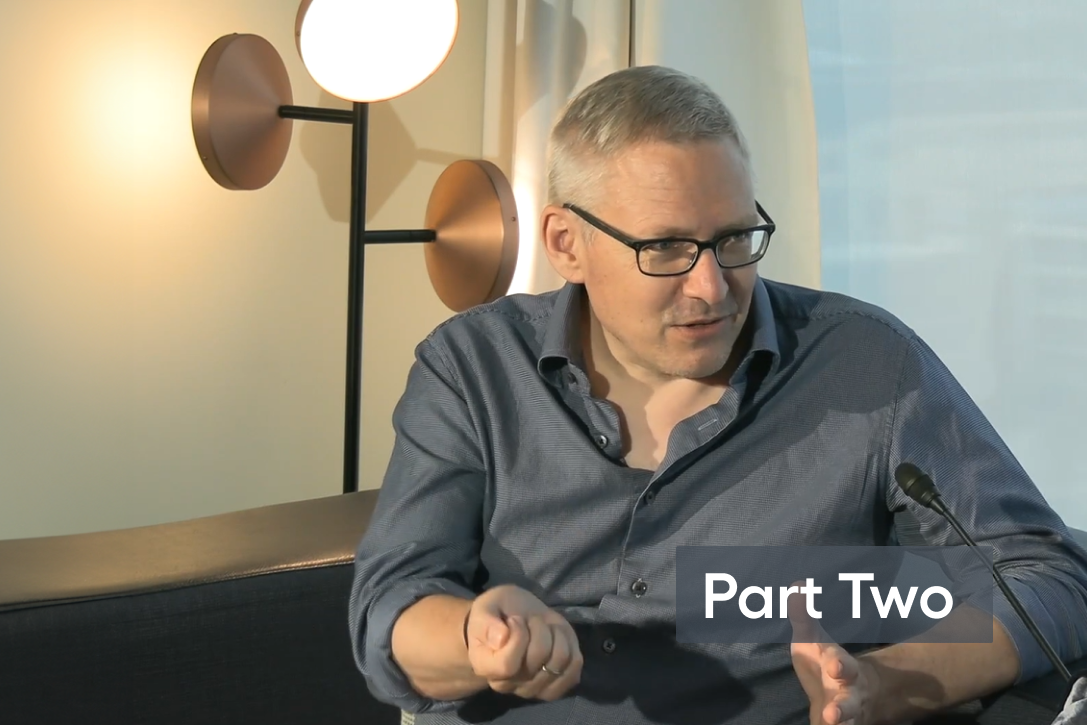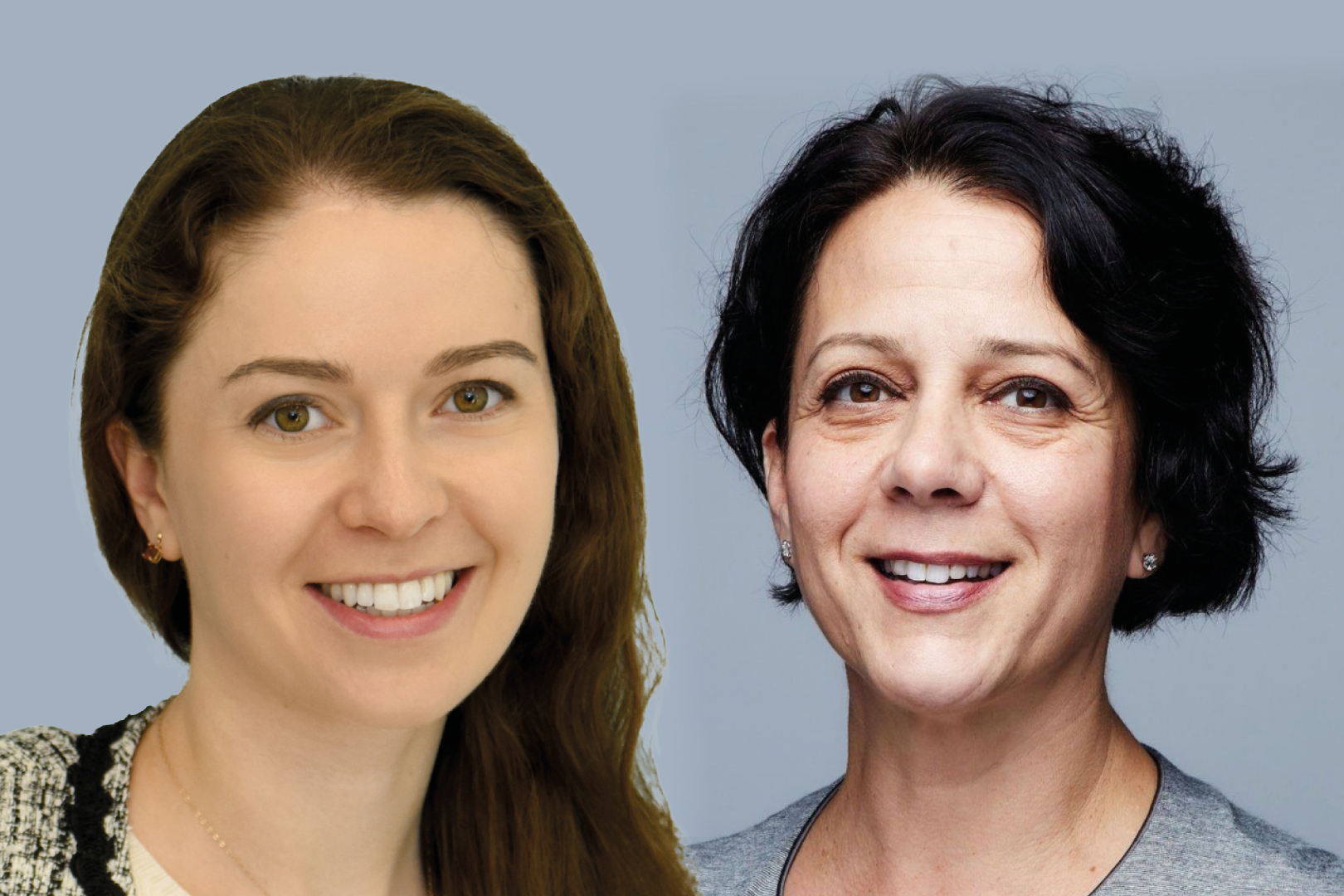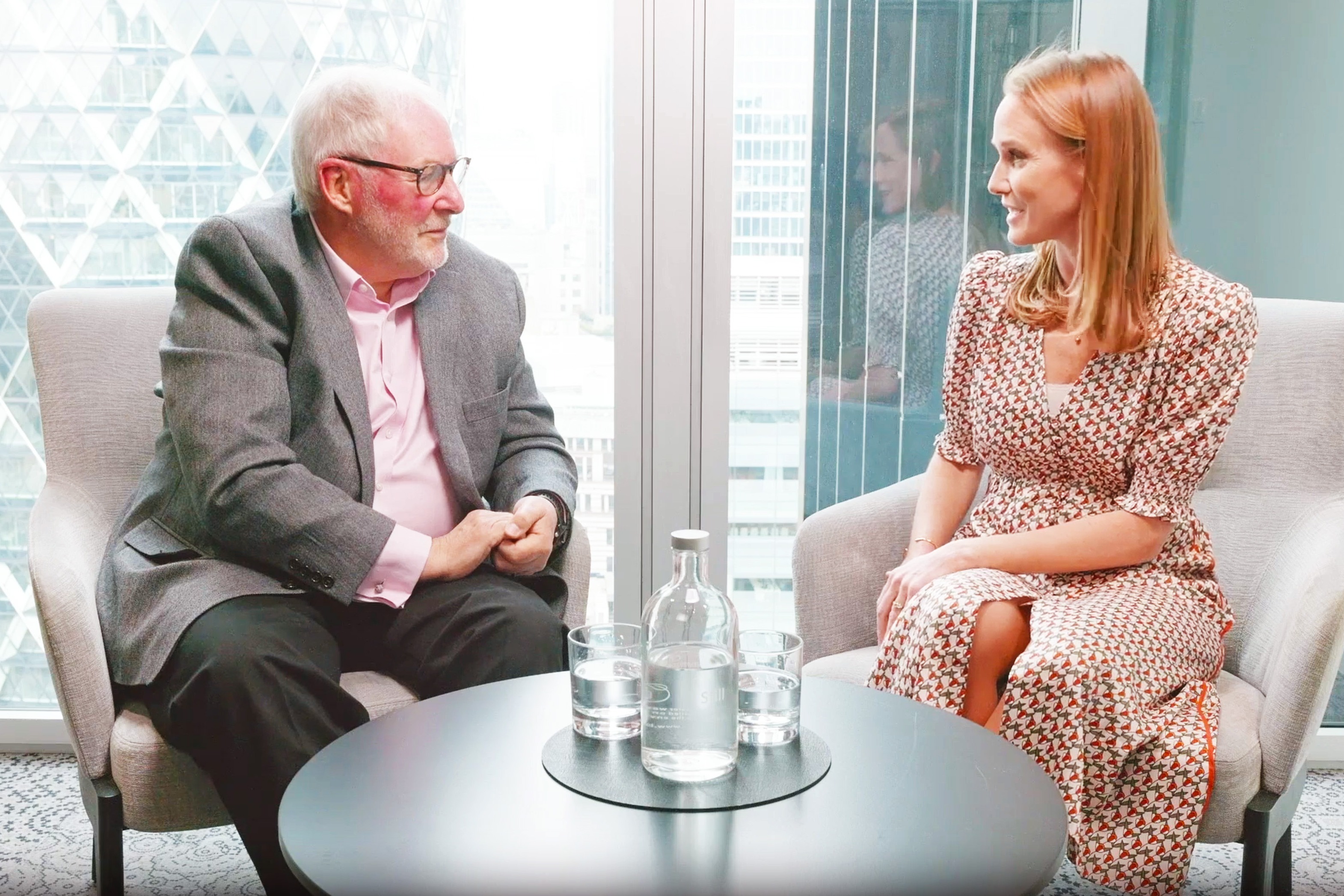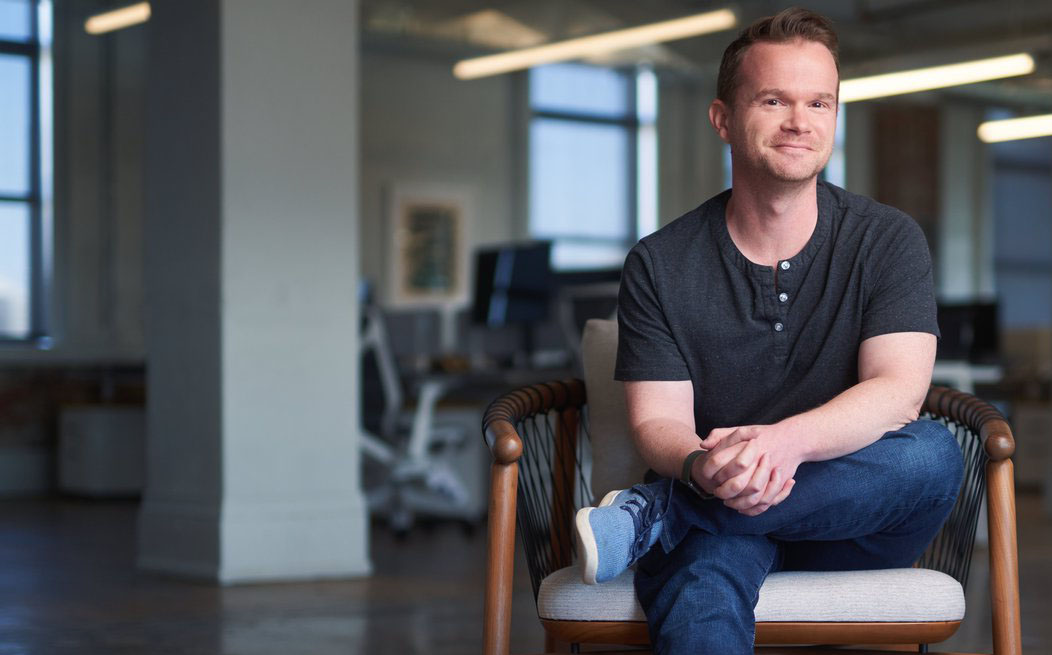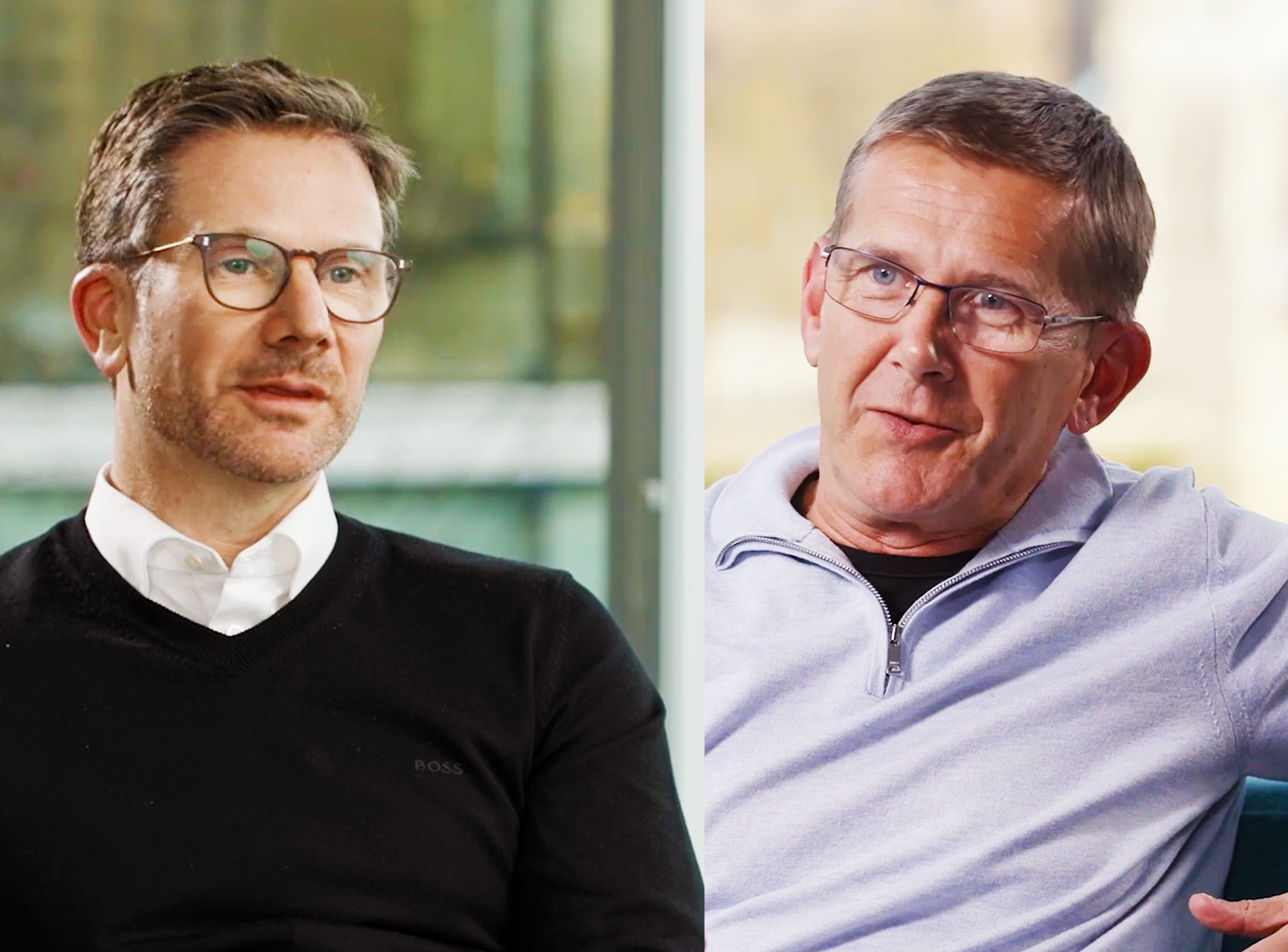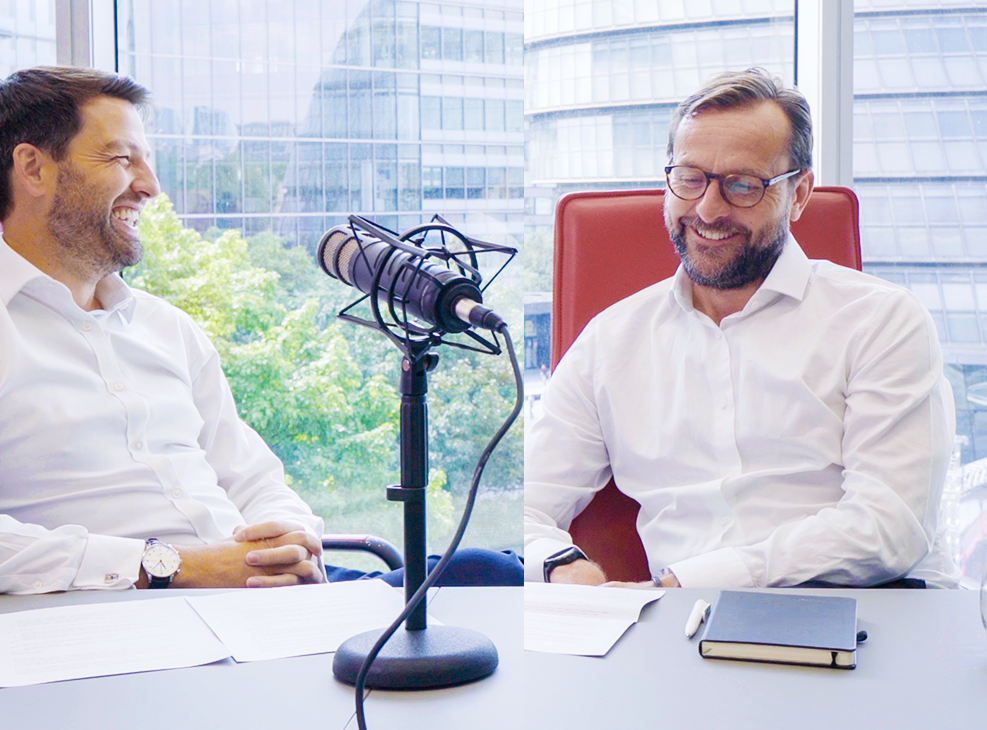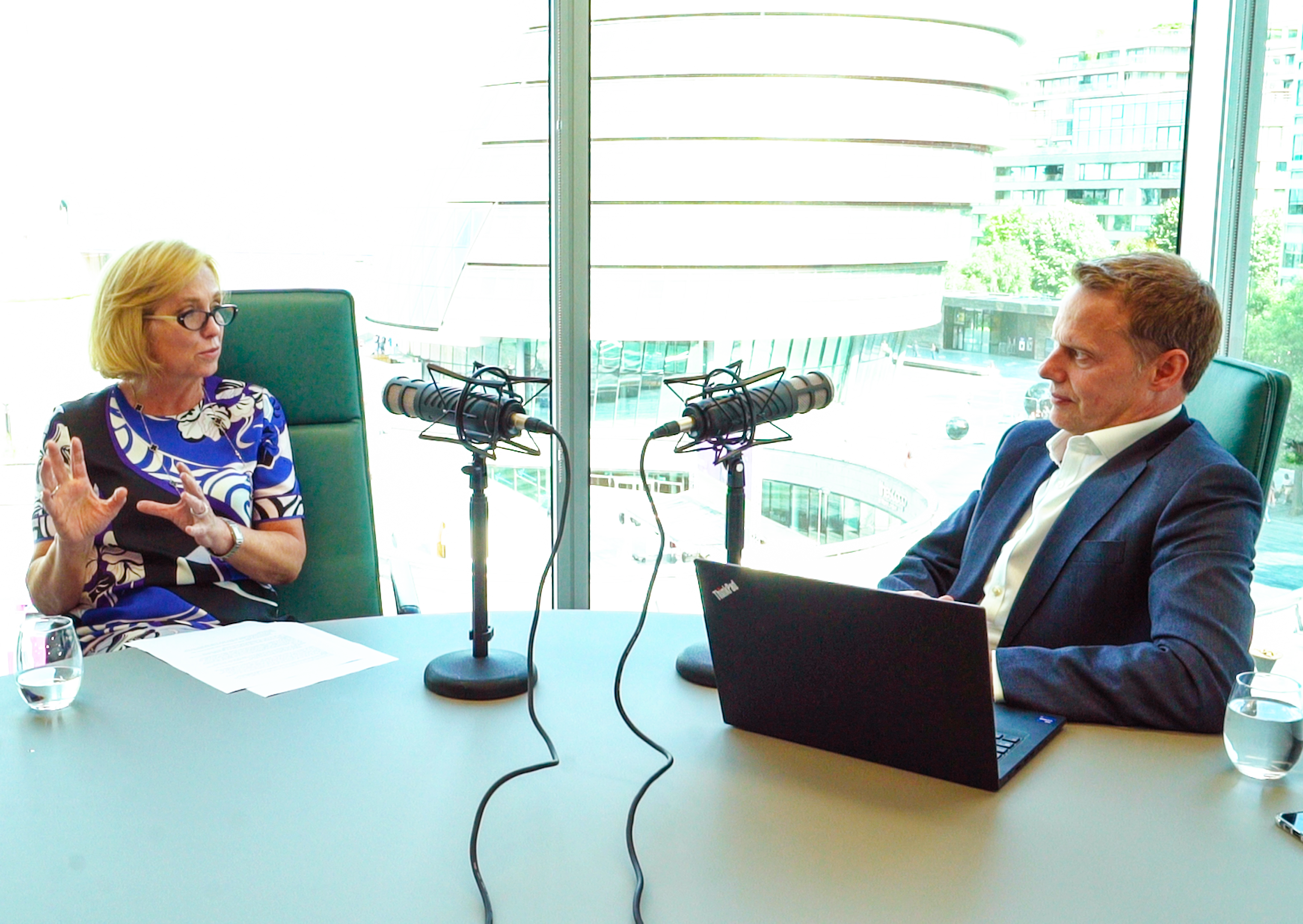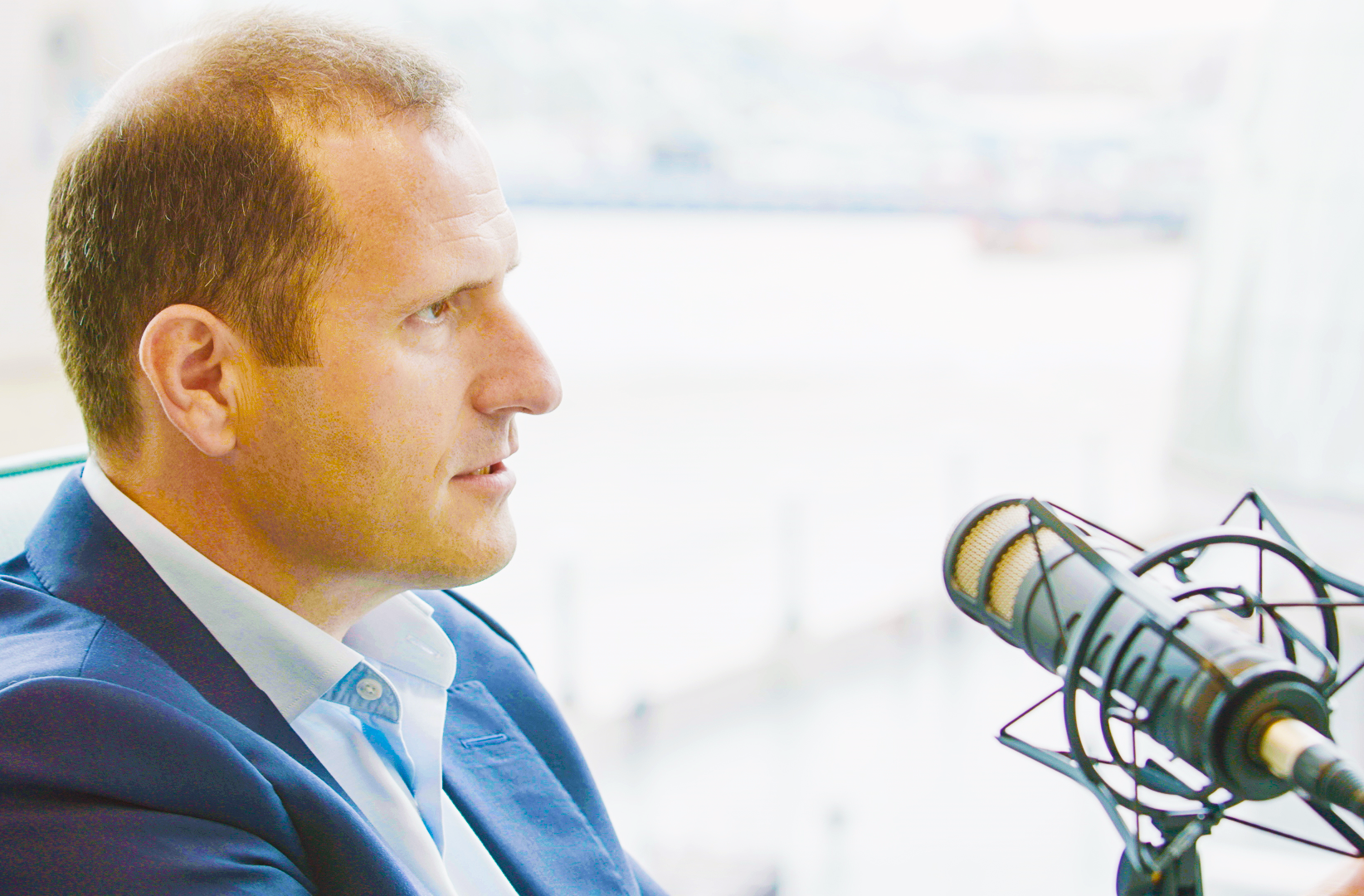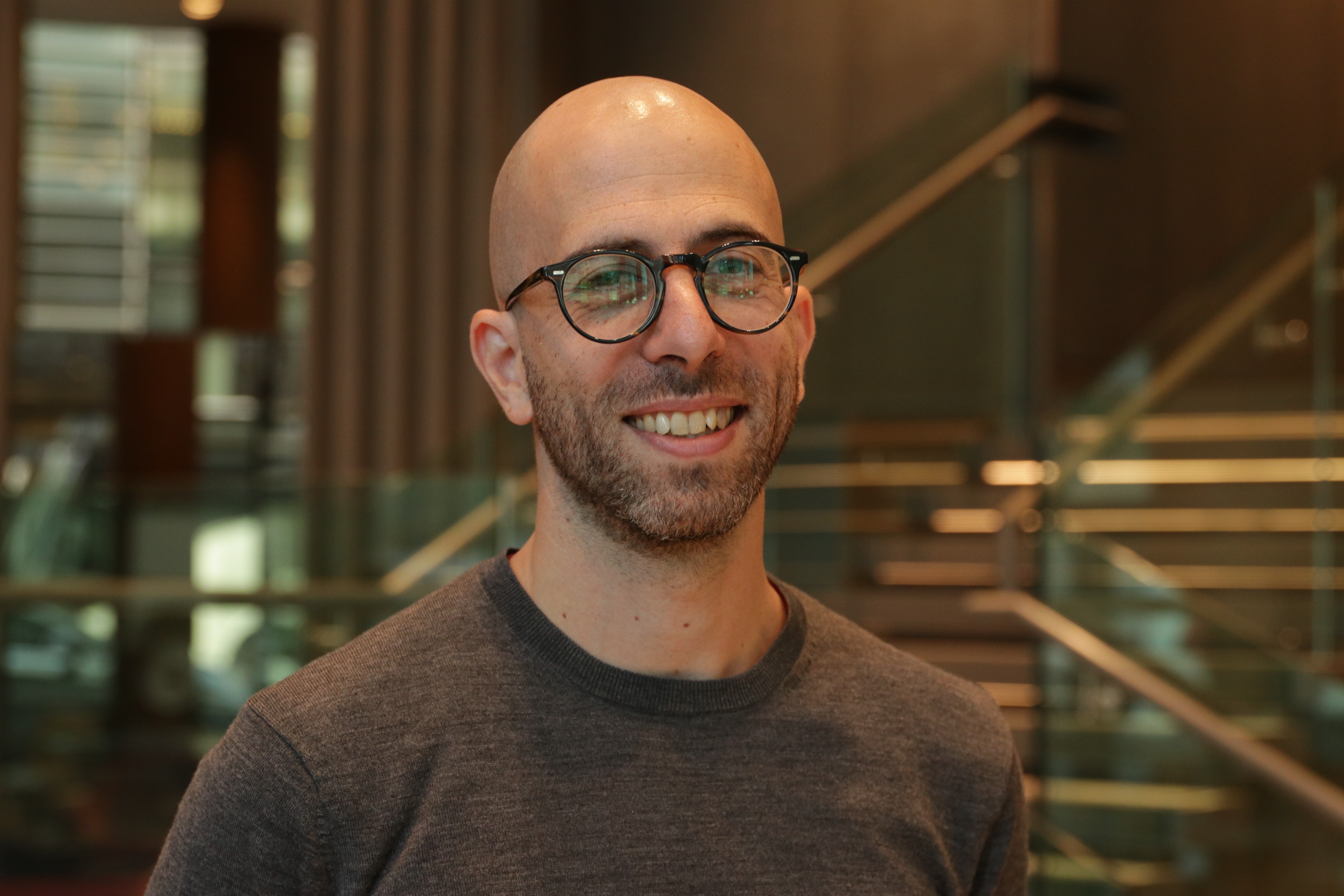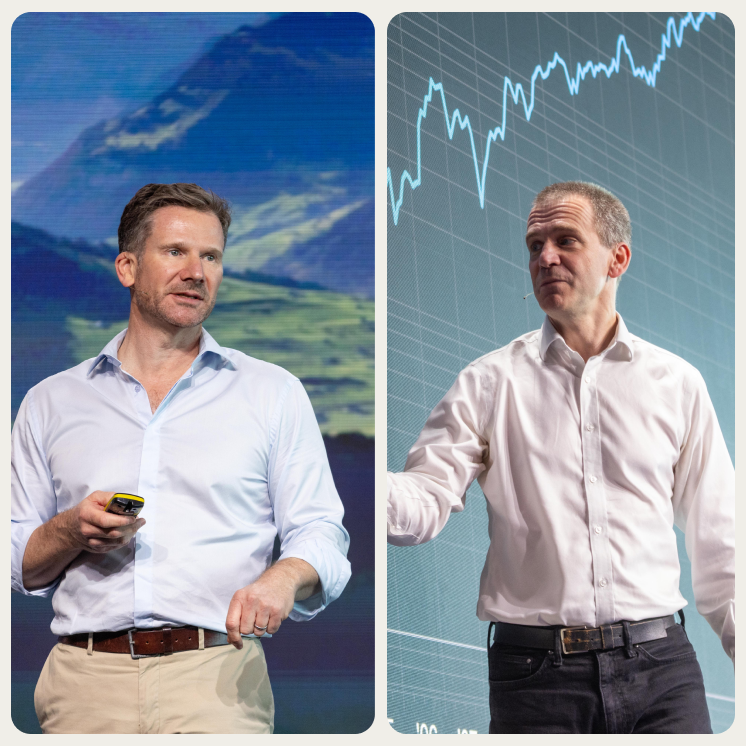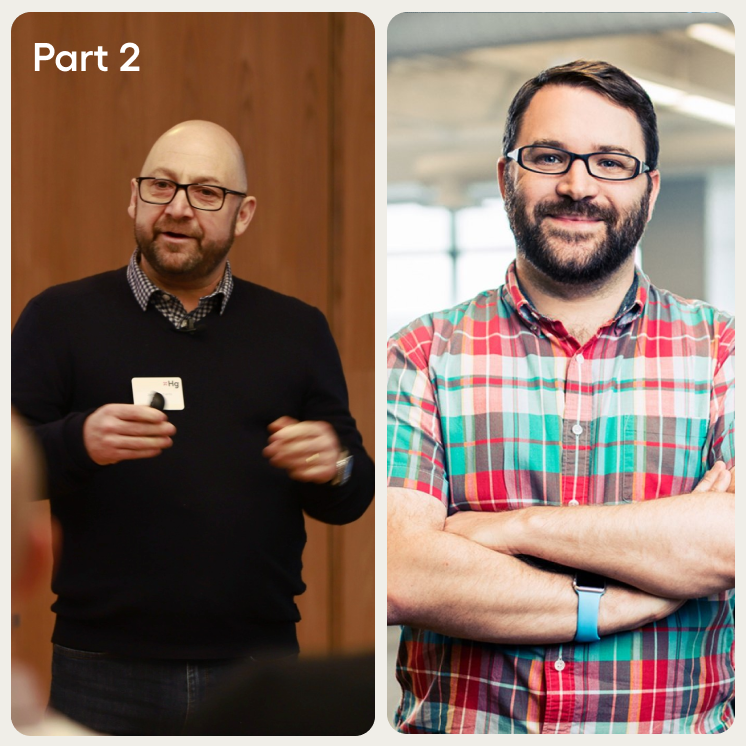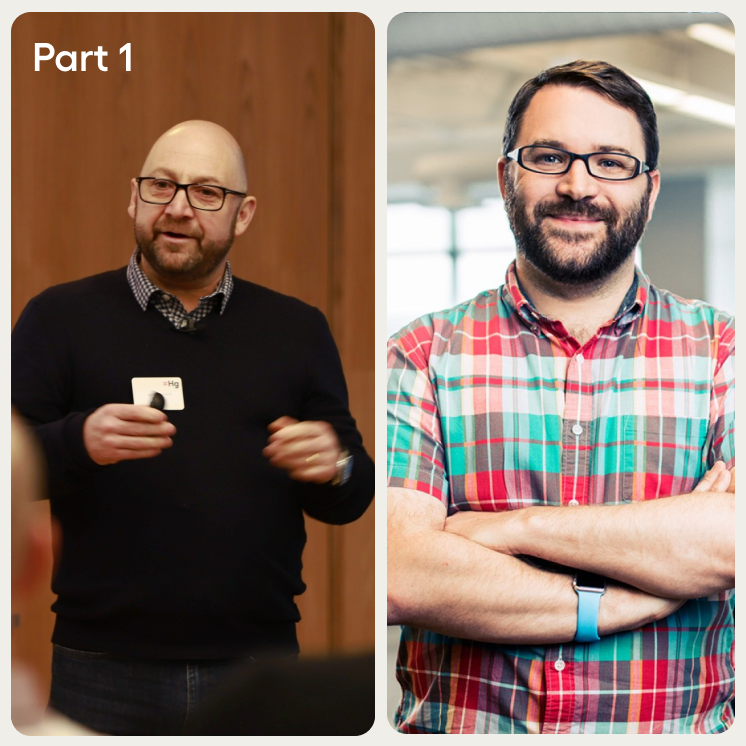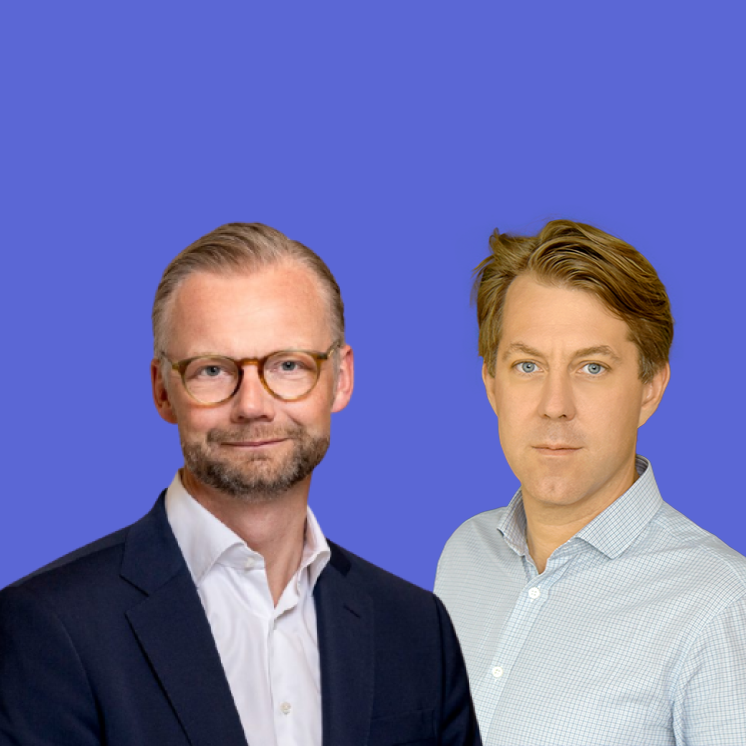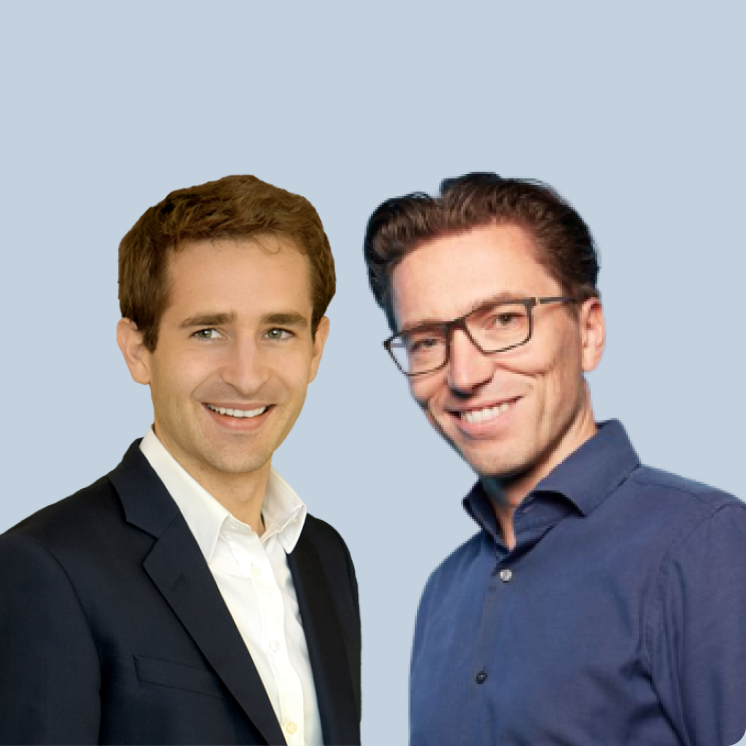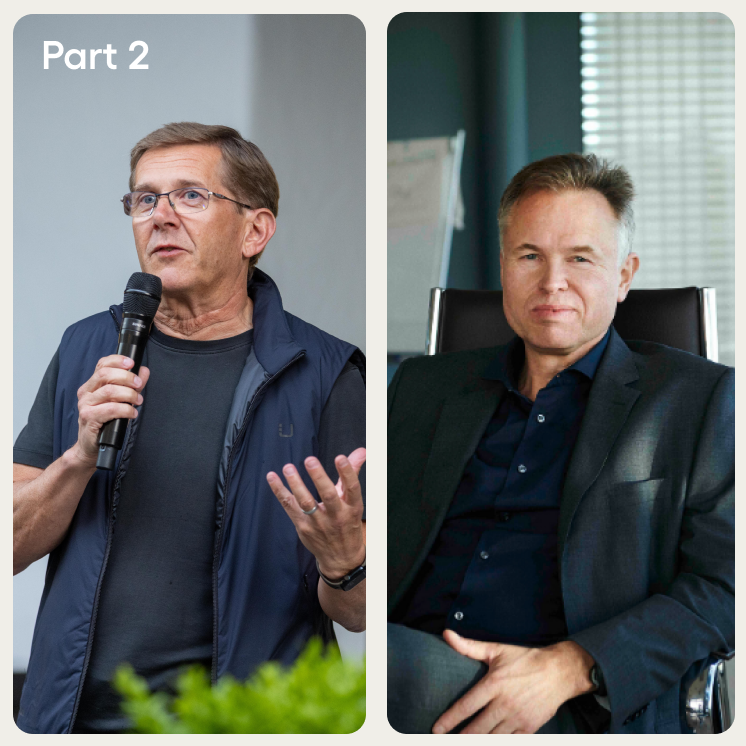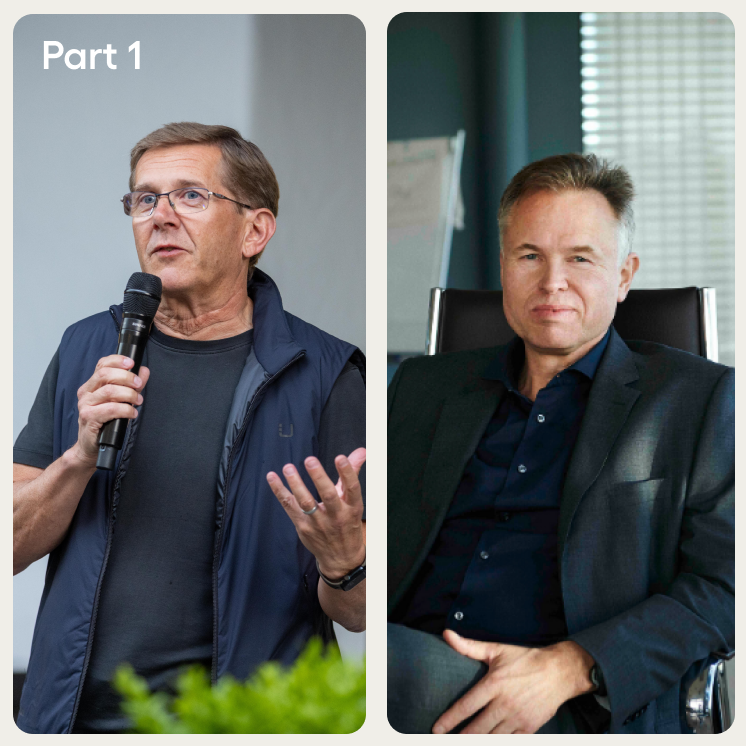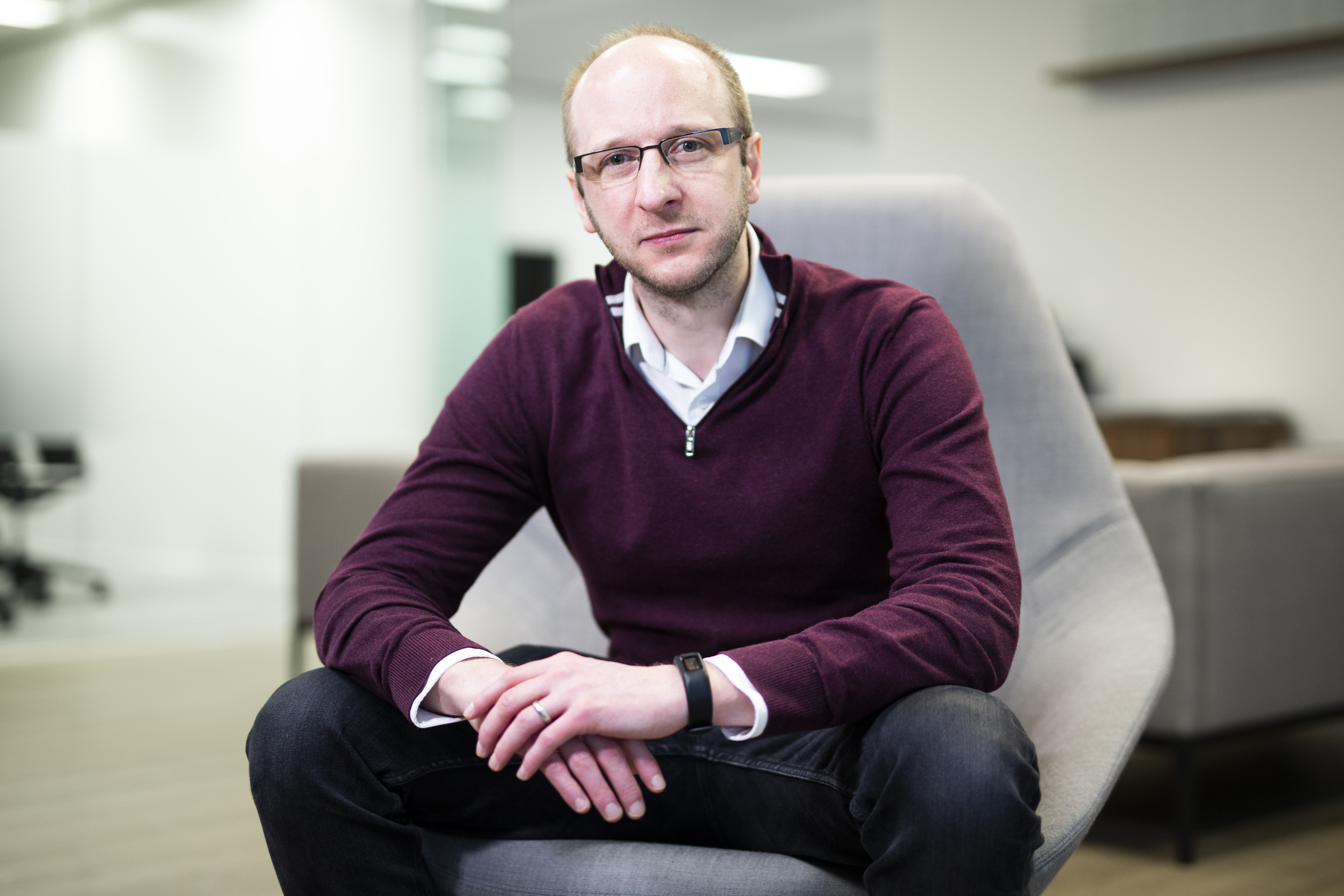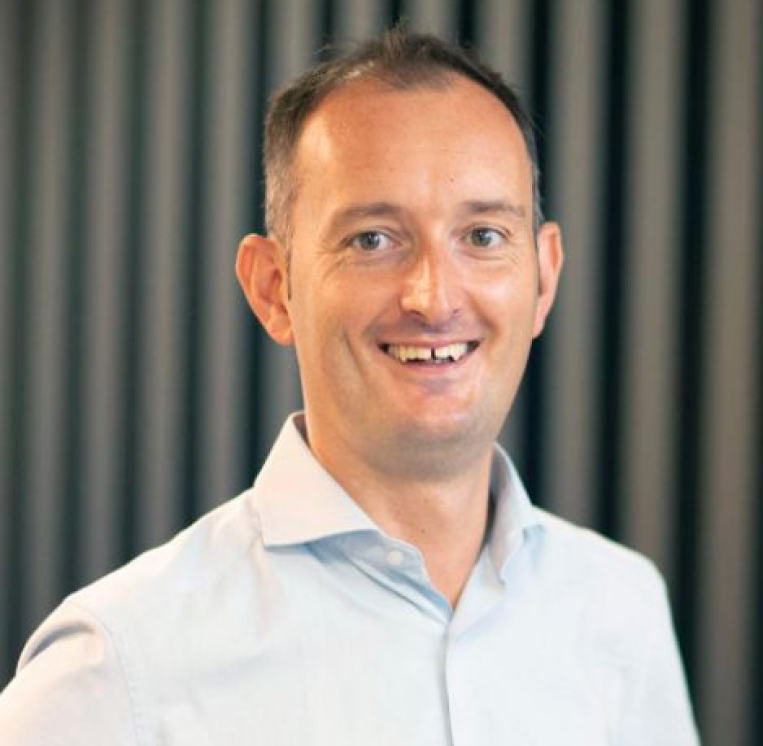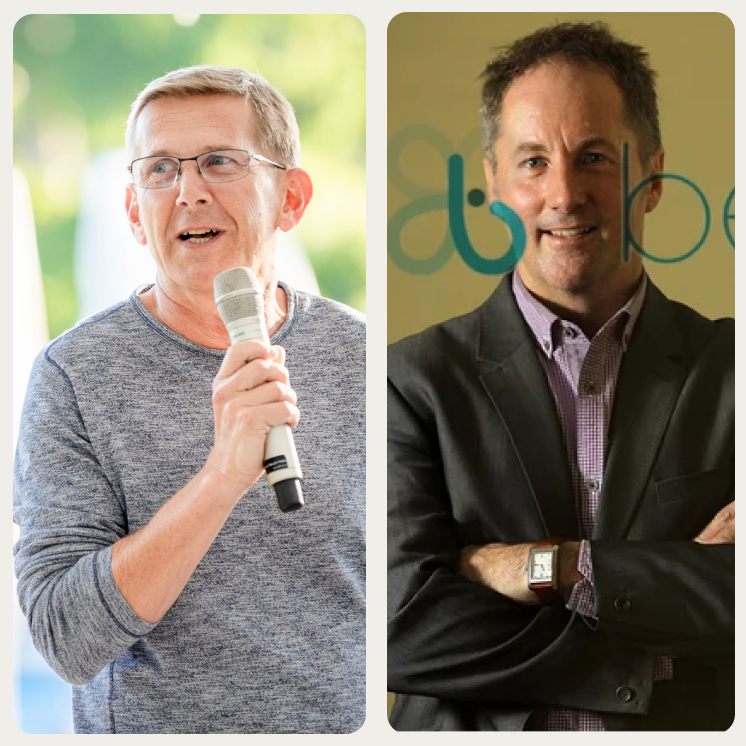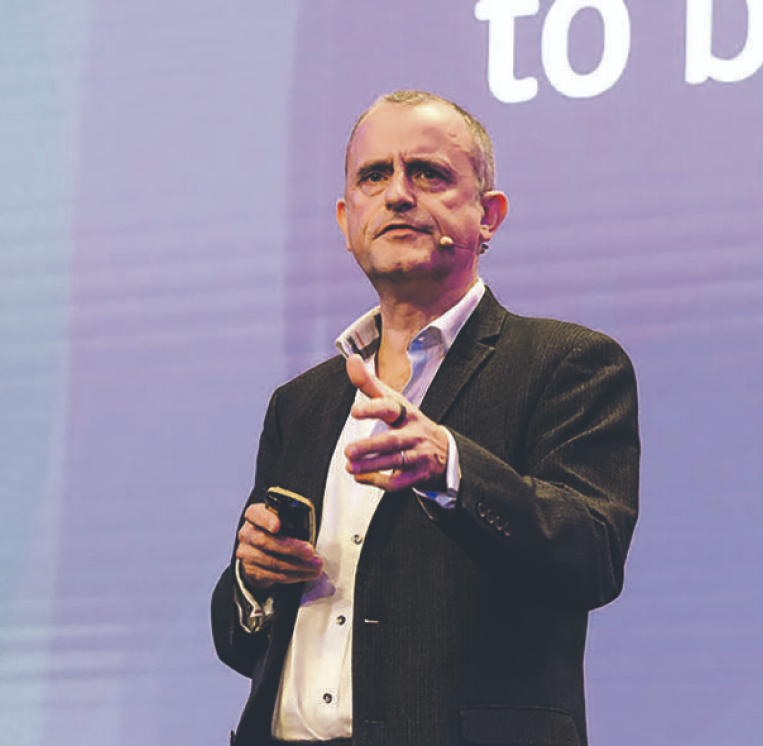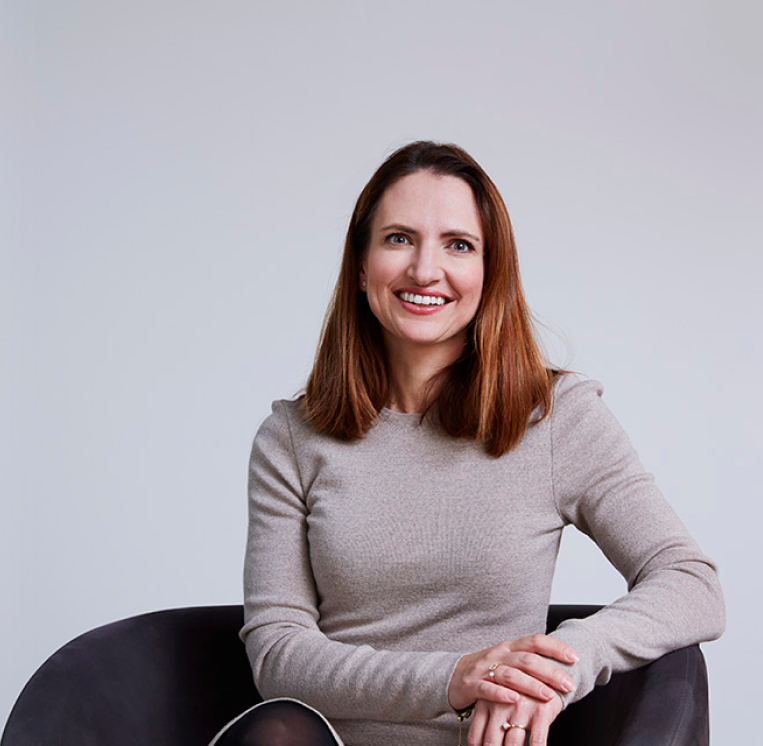Orbit Podcast
Orbit 48
Refounding in the face of AI with Des Traynor of Intercom
Orbit 48 sees Dr Amr Ellabban sit down with Des Traynor, co-founder and CSO of Intercom, to explore how AI requires revolutionary thinking from businesses. Des shares the pivotal moment when ChatGPT emerged in November 2022, spurring Intercom's bold 15-day pivot to develop Fin, their AI customer support agent. The conversation reveals how successful AI transformation demands complete organisational commitment—from reimagining pricing models to restructuring teams—rather than incremental changes: "It's not a cherry on top. It's the only game that matters."
Drawing from his experience at Intercom and as an angel investor, Des outlines the three-phase evolution of AI in business: from augmenting human work to handling portions of jobs to eventually performing entire roles. For leaders navigating similar transformations, he offers unflinching advice on the necessity of decisive action and clear communication, predicting that AI may soon handle 60-80% of support volume in what will be "the largest change in how labour is applied in most businesses." His insights on product boundaries and avoiding "MiniDisc" solutions in rapidly evolving technology landscapes provide a compelling roadmap for organisations embracing this inevitable shift.
Listen on:
Episode Transcript
Amr Ellabban
Welcome to Orbit, the Hg podcast series where we talk about some of the most successful leaders of technology businesses and hear how they built some of the most successful software companies across the world. I'm Amr Ellabban, head of Data and AI at Hg. And I'm delighted today to be joined by Des Traynor, co-founder and CSO of Intercom.
Des Traynor
Intercom's Fin is the first AI agent that delivers human quality, customer support service.
Amr Ellabban
Des spoke earlier today at this year's Hg Digital Forum in Madrid on the subject of AI transformation and customer support.
Des, thank you for being here.
Des Traynor
Thank you for having me.
Amr Ellabban
Maybe for listeners who don't know you, could you tell us a little bit about your background?
Des Traynor
Sure. I'm from Dublin, Ireland. I studied computer science. Became a lecturer, attempted a PhD, dropped out. I met Eoghan, who's the CEO of Intercom. We had a consultancy together. We tried to have a side project. That didn't work as well as we had hoped. But in doing so, we discovered a bigger problem, which was internet businesses. Talking to their customers was a really hard thing to do in 2011. And we, together with Kieron and David, we launched Intercom where I've been working ever since. My job at Intercom is primarily product. So all of product design and engineering, et cetera, ultimately rolls up to me. And then on top of that, I deal with various other foundry level stuff, including podcasts. And right now, 100% of my attention is on Fin, our AI agent that you mentioned to start. That's like a ... We carved out a little specific group who focuses entirely on Fin, and that's where I spend most of my days.
Amr Ellabban
And we'll get into Fin in a minute. But can you share a little bit more about what that early journey was like, being a founder of a business, and then growing it to the kind of scale that Intercom reached?
Des Traynor
It was a lot of fun. It was pretty manic. I think you never really ... Our fundraising was initially we did one million, five million, 23, 35, 50 and then 125 or whatever. I think at every given point, every time you do something like ... Fundraising tends to be the moment where these things get punctuated. It always feels like both an achievement and also a new target at the same time. So you're like ... Bank debt, we've clearly done something. But now, we have to do something even bigger again. It's like jumping from treadmill to treadmill and they're all set on slightly higher speeds or slightly higher inclines. And it's a privilege to do the jump, but it's also you have to be aware of what you're doing. And that's what the emotional side is like because you're always just feeling this like, "There's one more, so much to climb."
The other piece is just there's an all encompassing aspect, which is things break all the time. People leave, leaders don't work out. Functions are missing a leader. And so I would say in my time at Intercom, I've led everything from the customer education team to the customer support team, to marketing in general, to product in general. I've bounced around quite a bit. You have this obligation of being a type of a fire person. Wherever you see there is a fire, you run towards it. And that's honestly what happens a lot, is like, "Oh, something's not working out. I better run towards that problem." When other people are maybe more inclined to detach themselves from it, you need to lean in harder. That's the other aspect. But lastly, I'll just say you start off very narrow. I start off identifying and thinking myself just as a product manager or somebody who really cares about what we're building, and the art and craft of product management.
And you just constantly get broader perspectives the whole way, where like ... I watch podcasts of myself in 2013 where like, "The most important thing in company building is scoping the right product," whatever. And I'm like, "Really?" Because I just think you just constantly get ... And if you had to look at me in 2017, it would be like, "It's LTV CAC." That's the thing that matters most. It's like you know that iPhone camera feature where you can keep making it a broader and broader perspective? It just feels like that, where it's like I used to think about where does this feature fit within a product? And now, it's much more like where does this business fit within a landscape? Perpetually zooming out. The tail end of that is you end up being one of these slightly more abstract people that I would've hated when I was 30.
Amr Ellabban
But it gives you that broader perspective to be able to understand the whole business and have more of an impact.
Des Traynor
Yeah, totally.
I do a bit of angel investing as well, and it certainly helps from that perspective because you realize some things aren't uniquely Intercom, they're generic. And then there's other things that we're just flat out missing that we need to learn from. Because I've seen companies where you'll go hyperviral or I've seen companies where all they cared about was product and it didn't work, whatever. So the nice thing about angel investing is you learn lessons on other people's companies too.
Amr Ellabban
What are maybe some of the lessons that you've learned from other people's companies that you've brought back to Intercom?
Des Traynor
I think knowing where your product stops is probably one of the most important. I've invested in just a few different companies in this category. Superhuman, the email client, Equals, is in AI powered spreadsheet, are two examples where they have pretty clear guardrails, as in we don't go further than X or whatever. And I think just the nature of Intercom, the way we started, was it was like a communication channel, free internet business to talk to their customers. It was really hard to draw a bounding box and be like, "No, we won't do a sales conversation. No, we won't do a marketing conversation." The temptation is always like, "Well, its customers want to build it."
Amr Ellabban
People adding more to it.
Des Traynor
Yeah. Whereas I have genuinely seen that there probably more examples where I've seen some companies do really well just by saying, "No, there's no rational reason for it. But we draw the line here and we're going to be the best over here and we're not touching what's over there." There's merit to that approach. But I will say I'm also an investor in Miro or a Notion, where they've just broadened and broadened, and I can see how that works too. But they do it perhaps more through M&A than they do through internal, how you say, dilution of strategy or whatever.
Amr Ellabban
You mentioned in your talk a moment in 2022 that was pretty transformative for you. It would be great if you could share that in your own words.
Des Traynor
Everyone will remember where they were when they first heard of ChatGPT, I think, especially if you work in tech. I think it was November 29, November 30, 2022. I was sitting in my kitchen having Thanksgiving dinner I think. I just, as you do, I turned my phone up and I saw the little Slack icon with 11 updates. And I was like, "Oh, goody." And the most poignant one was from Fergal, who's our VP of AI. And he said something like, "Have you seen this?" And he linked up chat.whatever OpenAI.com. Or whatever the link was back then. So I had a little play with it. And I was like, "Oh, yeah," because we had been partners with OpenAI for quite a while. So we were playing with the OpenAI Playground, which is the previous version of this. And Playground was the ability to expand or finish the sentence.
And it was pretty impressive. But still no obvious application, just a very much, "Heh, that's cool," type product. But this was definitely quite different. Different in both the AI. But also honestly, I think the UX of ChatGPT at the time doesn't get enough credit either. The next thing, I think I got an iMessage from Kieron, our chief engineer. And he was just like, "Have you seen this?" And I was like, "Hmm, something's going around." So I met Fergal the following morning at 10 A.M. And he just gave me his take. I rang Eoghan, our CEO that evening. I think it was Friday night. And I basically said, "Look, everything I'm seeing and everything that Fergal's saying, I think we need to make a swing here." And obviously, our strategy on the Wednesday of that week was not to bet the whole company on AI because AI hadn't happened yet. Right?
... not to bet the whole company on AI, because AI hadn't happened yet. So I was like, I think we need to change it.
I will say, it's a really important moment to have a founder level CEO, because it's such a risky conviction bet that Owen was willing to make, which was just... Obviously, he did his own research, and everybody was like, "Let's do it." I can imagine that I've seen a lot of companies struggle where they adopted more of a wait and see type policy, which is just a bit more cautious, just a bit more like, what will the investors say or whatever. Whereas we made the decision, I think we started work on Monday to go hard on AI, and I think 15 days later, we had our first features live and we got a lot of credit.
I remember we shared some links and some GIFs or some videos, and Marc Andreessen and all sorts of folks shared it to the internet, they were like, ah. At the time, it was cool, because for us, it was planting a flag that there is an AI revolution happening and we are now in it. And I think a lot of our competitors have only, in the last six months or so, said the same things that we were saying in January 2023. But that was the moment. And obviously, there was a lot to it, because you're canceling roadmaps for starters, you're saying, "Hey, all those features that we were going to build to make us even more competitive with Zendesk, they're not coming. We're going to build this other thing that no one's asking for, but it's really important."
There's a lot of change you go through, and you have to go through it extremely fast in order to be competitive. But it was probably the single biggest move now or forever hold your seats type moment, if we didn't actually get there, we were going to be in trouble trying to sell seats in 2025 or whatever.
Amr Ellabban
And it's really interesting, because we discuss a lot internally at HG the innovator's dilemma for a lot of incumbents of, to your point, how do you give up this BAE roadmap, this plan that has been baked in for a long time and carve out the resource to go and attack this new AI problem with conviction. Obviously, you touched on having a founder CEO able to take that decision boldly. But was there anything else in terms of how your organization had been set up before this that helped you pivot so easily?
Des Traynor
We had previously invested in AI. The fact that we had a VP of AI... Well, he wasn't a VP at the time, the years of being kind to him. But we had an AI leader at Fergal and we had built an AI product resolution, but we had prior experience here and we knew where we were at and we knew what was and wasn't working, so we were able to appraise the breakthrough quickly. I think that was really important.
We also, Owen and I would be like students of Clay Christensen, we were very aware of the innovators dilemma and we were very aware of... At the time, we saw a lot of people giving it the whole Blockbuster thing of like, well, we have stores in every city, surely that will help us stand up against Netflix. You have to have a very good intuition for what's cope and what's reality, and it's easy to convince yourself, these seats are going to stick around forever, or versions of that, like we've been here before, people promised US AI for years. So I think the ingredients of the rapid pivot, I think, are both at CEO level and then just tooling and enablement level.
So we actually had an AI team ready to jump and actually able to produce this stuff, but there was a few little fortuitous things. We happened to be planning a rebrand anyway, so it gave us a chance to change how we were branding. We happened to be planning to change our pricing and packaging anyway, so it gave us a chance to reconsider how pricing should work in a post-AI era. We were one of the first, I think possibly the first, to move to this outcome-based pricing of, so Fin charges $1 per successful resolution. The biggest discussion is, well, if someone cancels their seat and just uses Fin, then you're going to lose all that seat revenue. And I'm like, we're losing that seat revenue anyway, long-term, the seats are going, so you have to just accept that and embrace that reality.
Then separately, you then have other conversations like, "Hey, we were charging $80 a seat. Do we think that person sitting in that seat does more than 80 successful resolutions? And if so, do we think we can replicate their resolutions with Fin? And if so, if it's more than 80, we're actually up on this." For sure, the whole thing might shrink because the salaries go down, et cetera, but this should be cheaper for the business and actually more profitable for us if we do it right. So we had to bake all that in to pop out what became our resolution-based pricing. And at the time, if you remember, AI was quite expensive as well, so it's down probably several factors since then.
Amr Ellabban
So I think it's down 1000x since that-
Des Traynor
Perhaps, yeah, yeah, yeah. And there is the paradox thing here that the cheaper it gets, the more of it we use to be better, so we're dialing it up as well.
Generally speaking, I think the freedom to have movement in all of these approaches, how we sell, how we price, how we market, how we build, what we build, where we build, our product strategy, every single one of those things was deeply affected by AI. I've seen first-hand, through either our competitors or incumbents in the market, when you're locked up in multi-year roadmaps and you're maybe beholden to public markets and having to explain yourself all the time, you have way less ability to pivot the joints, and all those things are connected, as in you can't just change what you build and expect everything else to be the same.
You now need to explain AI and price AI, so all of these things need to move together, and I saw a lot of folks try to move them one by one, which is why, I think, a lot of people strategically get stuck in Copilot, because they were able to intellectually grok well, we can stick a tenner on a seat and we're done. But actually, that's not how you're going to position yourself to do work for people. You're going to augment work, but the actual bigger change here involves everything. It involves changing what you sell, how you sell, what your performance metrics are, what your differentiators are, everything has to change. And if you think about it, Michael Porter has this framework of activity mapping of all of a business has to fit together, so if you take, say, Southwest or take Ryanair, these low-cost airlines, their model, the same reason they don't do a full meal service is the same reason they turn the planes around in 15 minutes it's the same reason that they can do low fares. All of those things are connected.
Similarly, what you sell, how you sell, why you sell it, how you price for it, how you differentiate, they're all connected, so you can't iterate on these things one at a time.
Amr Ellabban
It has to be a whole company transformation.
Des Traynor
It's a whole company transformation, and that's scary as hell. So as a result, a lot of people try to dip their toe by making little incremental nudges along the way, whereas in practice, you need to be like, right, let's redesign the company around AI.
Amr Ellabban
What was that journey like for you at Intercom? Because I guess you must have had to transform your sales teams, your own support teams. What was that journey like, how did you bring people along with you?
Des Traynor
Owen had returned to the company and he had a plan for what we called P52, which was a plan to basically refound the company, is the best way I could describe it. He'd probably have better words. It's almost like we already had all the floorboards up, so it's easy to fix everything at once, if you know what I mean, metaphorically or whatever. And then, later on, say the likes of our CPO, Paul, or me or Fergal or whoever going around and making sure everything is consistent and everything works together. We had just done a reduction in force, we were changing our pricing, everything was already in a fluid state, everyone was already prepped for a significant wave of changes. So in some degree, it was a fortuitous that it happened when it did. Had to happened, say, six months later, we might've been halfway through a new strategy and had to throw it away, and that might've been harder. I still think we probably could have... through a new strategy and had to throw it away, and that might've been harder. I still think we probably could have done it.
But yeah, there was something useful about the fact that no one was married to anything at the time. Whereas I think if had, if we'd already made these broad commitments to customers or to the market or to investors, whatever, I think that would've like locked down our freedom a lot.
Amr Ellabban
Maybe bringing it back to Fin and support for a second, one of the things you talked about earlier today was how you view kind of AI starting out as augmenting what people do. You talked about Copilots just now, but then doing chunks of someone's work, and then eventually kind of doing a whole job. And we had Russell Kaplan, one of the founders of Cognition, talking about Devin in a similar kind of way for software engineering.
Assuming this kind of plays out over time, that means kind of really significant changes to how some of these organizations are structured for, well, all kinds of businesses. How do you think about that in the long run?
Des Traynor:
I think it's going to be like the largest change in how labor is applied in most businesses. I mean, there will be some businesses that won't be affected directly, but I think most will and like software engineering orgs will change. You're seeing a lot the rise of these like 20-person companies doing hundreds of millions of revenue or whatever. So I think like the nature or the ROI of any one individual should be a lot higher.
I think in customer support, it's pretty obvious. Like if 60, 70, 80% of the support volume is disappeared, it's unlikely the support org is going to be the same size on the far side of that.
Now as to whether or not they stay in the company, we're seeing genuine variance here. It's not like everyone's just having widespread rifts. Oftentimes support teams are like understaffed anyway, so actually what they get to is a right sizing.
Sometimes we're seeing people realize that like, "Hey, now that we're dealing with all the like the low-hanging fruit and all of the like the recurring scenarios, whether it's refunds or like change requests or whatever, now we can work on customer success." And, all of a sudden, you see a reinvestment in like, "Rather than being there when things go wrong, how do we have a team that makes sure things go right?" So you're seeing like different approaches depending on the industry, depending on the pressure on margins, et cetera.
But I think in general, like the pattern of AI, I think if I describe it in three steps, in practice, it's a spectrum, but I'll call out three steps, step one was augmenting humans for what they were already doing and just making them more productive. And the stats we see are like with our own Copilot, which helps an agent answer support questions, we see about a 30% of increase in productivity in terms of just raw throughput of the handling time or whatever. They just get through more stuff and that results in like you needing less agents, obviously.
The next step is probably were Fin is. Fin's somewhere between the second and third step here, which is like doing a significant chunk of somebody's job. So not augmenting them doing it, but just doing it for them, and that means like, "Hey, you never have to handle this type of thing again."
And then the final step will be like know in Fin's case will be like Fin is a complete frontline sort of agent. There's a ways to go there, but we're obviously building it, but like there's a ways to go in other parts of like say, CS orgs need to work at what does the world look like when that's the case?
I think you can map those three scenarios to like most areas. So you've got say like helping engineers to like doing a whole chunk of engineering. For example, maybe like standing classes up or writing tests or maybe handling all bugs or something like that, all the way through to like Devin as both your senior principal engineer and your CTO or whatever. I believe on some timeframe we'll get there.
And you'll see the same in creative, like helping people design to creating designs. I'll tell you one funny example that made me realize this framework exists was last July, I think I received a pitch to invest in a company. And what they did was they were really good at using AI to help you write outbound sales emails. So I was like, "Okay, cool. I get it. That problem makes sense." It's augmenting a human doing the thing they're doing.
And then like Wednesday of that pitch, I got another... Wednesday of that week, I got another pitch and the pitch was, "Hey, you just give us the email addresses and we will find the person, look them up, write the email and send the email." And I was like, "Ooh, that's now doing that a chunk of SDR work is now being handled by this company. And if they succeed, no one needs the former company, right?" And I was like, "Okay, so you... Checkbooks out. This is the one."
And then on the Friday of that week, I got a third pitch, which was, "You tell us what type of customers you need and we'll do the rest." And I was like, "Huh?" And they're like, "Yeah. You tell us the profile, the buyer, like the industry, and we're going to do the sourcing, do the scraping, the Zoom info stuff, the LinkedIn look-ups, whatever it is. We'll find out who it is you need to talk to. We'll look them up. We'll find out what's the right email for them. We'll send them the email, we'll handle all the follow-up, we'll get them into your calendar." And I was like, "Huh, if they win, then you don't need the former two, right?"
Now the interesting thing is the team pitching me on the Monday, I had max confidence they could build the product. The team on the Friday, I had the least confidence. But if they did win, they were winning everything.
I think that's the framework of AI is how I think about it. We should assume AI is going to get really good even from where it is today. And because of that, we should assume we're going to end up high to the right. The only question is one of time horizons, and I often tell the story internally of the Sony MiniDisc, right?
The MiniDisc was a beautiful product. You might've had one, I certainly did.
Amr Ellabban
I did.
Des Traynor
And for like 11 years, the MiniDisc was the best product in the space. And then in 2003, it's gone and the MiniDisc wrapped up and it's never existed since.
During times of just technological upheaval, these transitory products can emerge, which is so MiniDiscs, I feel like they had a silent assumption that I guess that like SSDs would never get good enough to be portable and they'd overheat or whatever. They had all these assumptions that would say the iPod should never have existed. And then one day the iPod existed and then the entire like ground assumptions of the thing disappeared.
And I think there's a lot of MiniDiscs being built in the AI space right now because whether they know it or not, they're carrying a couple of assumptions of things that will never happen that in the quiet corners of Anthropic or OpenAI are actually happening pretty well and pretty reliably.
And I think that's the danger here is that you end up building a product that is like perfect for a moment in time and it's a difficult thing to avoid.
Amr Ellabban
And I think that's a really interesting one because we saw certainly in '22 and '23, even into '24, some products kind of briefly appearing on the market that were, I guess, a thin wrapper around ChatGPT. And we should come back to the topic of thinner and thicker wrappers. I know you touched on it earlier.
But how on your journey of building Fin, how many times did you see, "Hey, we've built this feature," and then six months later, an Anthropic release has just kind of superseded the need for that functionality?
Des Traynor
I believe it's happened a few times. I think a lot of the, I can't say authoritatively, Fargo will be the best person to answer, but I know that like our earliest Fin architectures, if you like, made assumptions about the models that they could or couldn't do certain things, or ultimately that we had to protect them against certain scenarios that as they advanced became less important. And as a result, when you realize, hey, we actually... Perhaps you can imagine like a step we might need to hedge against a bad outcome might become less necessary. I know every step costs money and adds latency, whatever. So you end up kind of constantly rearchitecting.
I think Fin's architecture is a constant work in flight, depending on model capability. And then we run like, at any given point, we're running like hundreds of AB tests of various different versions and iterations of Fin because we're constantly still optimizing. We're like Fin's Of Fin, because we're constantly still optimizing. Fin's percentage resolution average keeps going up month over month, but that's not because we're sitting here with our hands off the wheel. It's because we're... The AI team specifically are constantly iterating, trying out new things. What if we didn't need this? What if we merged this with that? What if we separated those two things? Could we get a higher performance? No one yet knows the optimal architecture for any of these products and I think you end up trying things and maybe they make sense at a moment in time and then a better model comes out and you don't need it as much. As long as you're willing to adapt and react.
I think the biggest thing I'd say is building an AI product is not the same as... Let's say you say, hey, you and me are going to go build a payroll product. We can probably make some hard firm assumptions about what code can do and how Ruby on Rails works or whatever it is, Python. It's almost like you're building, but the things you're building with are constantly adapting themselves, so everything is up for grabs all the time. And there's a phrase I heard recently, which is it'll basically never be chill again. And I think there's a lot of truth to that,
Amr Ellabban
And I think that's really true and we see it with many of the companies in the portfolio. It's that agility and ability to adapt to those changes in the ecosystem that's becoming almost the competitive advantage that you have-
Des Traynor
Absolutely. Yeah.
Amr Ellabban
... in this new world. One thing, maybe bringing it back to the point that support orgs are going to need to change as Fin gets better and the customer support, customer experience space changes a lot. We're seeing the same on software engineering. I bring it back to that point you made about this journey as a whole company transformation. It's not one function in isolation. What advice would you give to business leaders in terms of navigating these changes with their own internal organizations?
Des Traynor
It's most important to be really clear that it's going to happen and not to let it get... A lot of folks, their first reaction is some version of cope or potentially task minimization, if you know what I mean. They're like, I know that he says this, but really all he needs is this sort of thing. And before you know it, your call for a radical reorg or whatever gets turned into, Joey's going to join the AI group. And you're like, no, no, no, sorry. How did this get so heavily diluted along the way? It's a well-spirited intention, but ultimately, I don't think it's an option right now.
I think the first piece of advice I would probably offer is you need to be really clear with your senior leadership team or the team beneath you or whatever. Hey, the only acceptable outcome here is radical reorganization or whatever. The changes you need to make is we're going to build a new product. We're going to change our product's build, we're going to hire new people or fire new people or whatever. You need to really care that the outcome can't arrive heavily diluted because that's the default for any significant move in a larger company.
And then I think you need buy-in and then I think you need an execution plan, and I just don't think you've got time. The temptation, again, basically... It's a tough thing and it's tough for all levels. It's not like the CEO gets the easy job or, as one down from the CEO, it's not like I get the easy job of just being like, haha, alakazam. The reality is the reality. The market will correct every company that doesn't accept this new reality. And because of that, it's just a case of making sure you react correctly for what's best for the business and not what's... How would you say? Most convenient or what's the least amount of drama or trauma or whatever.
The challenge, very firmly, is we have to make a significant change, we have to make it very soon and we have to make it in full. And you then need everyone who's going to be on the executional arm of that change to understand, accept, defend, believe in that change, and you need them to communicate that change, whatever it might be. The way this goes wrong... I know what I'm saying sounds slightly abstract and fluffy and, of course, duh, that's just running a company.
But there's a difference between, hey, folks, our expense tracking thing is basically dead because everyone can build it overnight. The OCR stuff, we spent eight years building, anyone can build in a weekend. The rails up that surrounds it, anyone can build in a weekend. We have no sustainable differential advantage in the market. Our only hope is to have the best AI based expense tracking team. Okay, we need to basically gut our existing product team, pivot them to AI and launch this new product and it needs to be live in the market in six months. And that's going to mean nights and weekends and it's going to mean hard work and all sorts of stuff.
Okay, these are tough messages, but what will happen if you don't really fight for it and if the team beneath you doesn't fight for it, what will genuinely happen is people will say, I know Des says that expense tracking is dead, but he doesn't really mean that. What he means is we should really have some AI features and, to do that, we're going to borrow it. Our two weakest engineers from XYZ team, they're going to go over here, they're going to tinker away with OpenAI. And in three months time, we might have a better OCR thing, but we don't know. It's cool, but look, Des, we got it. We're on it.
That's the default kind of reaction until people accept the gravity of the situation. There's a great paper called Situational Awareness, that I think everyone in AI has read at this stage that, if you just Google situational awareness, you'll find it. I think it speaks to the reality of the situation that's unfolding in front of us. Again, the thing I think that's hardest to land with so many folks is there's still people today, at Shock Suite, who think of this AI thing as being an optional cherry on top of your existing business. They're like, yeah, we're doing great in payroll, software, expense, track.
I'm making up companies. I don't know anything about... But they think, oh, if we can do a bit of AI on top, that'd be great. Maybe let's get another fiver on the seats. I screamed until I'm blue in the face. I'm like, it's not a cherry on top. It's not a side quest. It's the only game that matters. And also the thing you think it's going to be on top of it doesn't exist either. Maybe it's a cherry, but it's not on top of anything. Literally, you either will win in this game or you will die in the old game. There is no alternative. You're on one side... I can pitch it both ways for what's right. I can say, great news, it's an opportunity to build a multi-billion dollar disruptive business in a new exciting area and we are at the forefront of technology. Isn't that exciting to work on?
And then some people respond to that. Other people respond to fear, in which case I say, great news, we're all going to die. Our company's going to die. Our product no longer matters. All the stuff we spent years building, irrelevant. Would you like to be a part of the future? Because the only game in town now is this new thing. We have to build up. What? Do you like the fear or you like the optimism? It doesn't really matter. You know that Avengers thing of Thanos, you tried everything else and where did that lead you? Back to me, I am inevitable. This change is inevitable. The question is, are you going to be a part of it or not?
Amr Ellabban
Fantastic. And on that note, thank you, Des, for joining us. It's been a really great conversation.
Des Traynor
Cool.
Amr Ellabban
Look forward to the next one.
Des Traynor
Cool, thanks.
Amr Ellabban
Thank you.
Des Traynor
Cheers.
Voiceover:
Thanks for listening to Orbit, the Hg podcast. If you'd like to find out more about Hg and our work building enterprises that endure, subscribe to our monthly update at hgcapital.com/monthly-update.
Orbit episodes
Orbit Podcast
A certain level of chaos is healthy: Franz Faerber on fighting bureaucracy and the importance of deep domain knowledge in AI
Episode detailsOrbit Podcast
The corporate immune system: Google Cloud's Daniël Rood on building Europe's first AI team
Episode detailsOrbit Podcast
Skin in the game: Professor Neil Lawrence on vulnerability, accountability and why the next generation will thrive.
Episode detailsOrbit Podcast
The 3 speed problem: Oji Udezue on CPO leadership in the age of unlimited engineering
Episode detailsOrbit Podcast
Fevered determination: Building Zalos from zero to enterprise in 5 weeks
Episode detailsOrbit Podcast
Trust, velocity, and building the Answer Engine: Dmitry Shevelenko of Perplexity speaks to Farouk Hussein
Episode detailsOrbit Podcast
The long road to the last mile: Nic Humphries and Matthew Brockman reflect on 25 years of Hg
Episode detailsOrbit Podcast
AI, Control Points, and the Next Wave of Vertical SaaS with Tidemark Capital founder, Dave Yuan
Episode detailsOrbit Podcast
A glimpse of the next generation: Zoe Zhao and Annalise Dragic of Azlin Software
Episode detailsOrbit Podcast
The business case for AI: Brent Hayward of Salesforce, David Carmona of Microsoft & Nagraj Kashyap of Touring Capital
Episode detailsOrbit Podcast
Mastering the billion-dollar software playbook: Joe Lonsdale of 8VC & Eric Poirier of Addepar
Episode detailsOrbit Podcast
